AGETECH HAS COME OF AGE



AGE-WELL NCE Inc. (“AGE-WELL”) is a federally-funded Network of Centres of Excellence established in 2015 to support Canadian research and innovation in the area of technology and aging. AGE-WELL is dedicated to the development and delivery of technologies, services and policies/practices that benefit older adults and caregivers. Our aim is to help older Canadians maintain their independence, health and quality of life through technology-based solutions that increase their safety and security, support their independent living, and enhance their social participation.
As Canada’s technology and aging network, AGE-WELL brings together more than 250 funded and affiliated researchers from 47 universities and research centres across Canada. More than 425 industry, government and non-profit partners work closely with us on solutions for healthy aging.
AGE-WELL also trains the next generation of leaders in the field of technology and aging. We have supported over 1,200 trainees since our inception. Our research projects align with AGE-WELL’s eight Challenge Areas, which are designed to move the dial when it comes to supporting older adults and caregivers in Canada – and achieving social and economic impact.
Canada’s leadership in technology and aging benefits the world.
To develop a community of researchers, older adults, caregivers, partner organizations and future leaders that accelerates the delivery of technology-based solutions that make a meaningful difference in the lives of Canadians.
EXCELLENCE Based on a strong and leading scientific research foundation
COLLABORATIVE IMPACT Using a transdisciplinary approach, we share knowledge, ideas and resources across disciplines and stakeholder groups to generate better outcomes
CAPACITY-BUILDING We train the best and brightest academic and industry talent
LEADERSHIP We are recognized globally in the area of technology and aging
INNOVATION We are engaged in a continuous process to create new ideas and solutions
INTEGRITY We uphold the highest ethical and intellectual standards in our research and business activities
EQUITY We are committed to equity, diversity and inclusion in all aspects of our network
4 6 8 12 14 22 32
EXECUTIVE MESSAGES
AGE-WELL BY THE NUMBERS
MAKING A DIFFERENCE CASE IN POINT RESEARCH EXCELLENCE
KNOWLEDGE MOBILIZATION & COMMERCIALIZATION
TRAINING THE NEXT GENERATION
40 42 43 44 46 48
NETWORKING & PARTNERSHIPS
INTERNATIONAL LEADERSHIP
LOOKING TO THE FUTURE
AGE-WELL CHALLENGE AREAS
FINANCIAL STATEMENTS
ACKNOWLEDGEMENTS
AGE-WELL gratefully acknowledges the support of its funder:
And the support of its host institution: AGE-WELL is also thankful for support from:


Message from the Scientific Director and CEO
Canada’s latest census data reveals that the number of people aged 85 and up has more than doubled since 2001 and is expected to triple by 2046. Baby boomers are now closing in on their mid-70s.
The aging population is one of the greatest achievements but also the biggest challenges of this century. We need practical solutions that support older adults and their caregivers. Technology can empower older adults to lead healthy, independent and engaged lives, and enable aging in place.
We live in an increasingly technologically advanced, digital world – and there is an unprecedented opportunity to deliver technologies, services and policies that benefit older adults and caregivers.
For the past eight years, AGE-WELL has served as a catalyst for technological innovation that promotes healthy aging, while driving Canada’s AgeTech sector.
AGE-WELL now counts more than 250 researchers at 47 universities and research centres across Canada, over 1,200 trainees, and more than 425 industry, government and non-profit partners. AGE-WELL also supports over 60 Canadian startups that are commercializing and launching products. Approximately 5,000 older adults and caregivers are involved in AGE-WELL activities, right from governance and management to being part of project teams.
And the results are truly extraordinary. More than 170 technologies, services, policies and practices are in development or already having an impact. These include virtual exercise systems, remote therapies, non-intrusive health monitoring technology, and medication and daily life management services for people living with dementia.
For example, smart home sensors are being created to identify potentially risky situations in the kitchen and signal people to take corrective actions. There’s a physiotherapy app that helps people recover from hip and knee replacements – right in their own homes. There are also innovations designed to improve safety
and quality of life for people who live in long-term care homes, and to ease stresses on staff so that they can devote more time to caring for residents.
Our work could not be more relevant or more needed. Technology can enable Canadians to age in place safely in a location of their choice, and to transform care and support across all settings that older adults call home.
This past year, I was honoured to lead the development work for the CSA Group of a new draft national standard for long-term care homes. It provides guidance on safe operating practices and infection prevention and control (see page 17).
During the pandemic, older adults increased their use of many technologies, but we also know there is a digital divide between technology haves and have-nots.
AGE-WELL is working to address this and to help technology leap forward – quickly, efficiently and effectively.
We are especially energized by our flourishing partnerships and the addition of two new associate scientific directors, Drs. Jennifer Campos and Josephine McMurray. Significantly, we have also secured funding for a dynamic new training initiative. EPIC-AT builds on our globally-leading EPIC program that is training the next generation of innovators (see page 33).
We are seizing the opportunity that technology offers to make a meaningful difference in the lives of older adults and caregivers everywhere.
As I write, I am picturing Canada’s AgeTech Startup Map, released last spring by AGE-WELL. It shows the blossoming startup scene across Canada, depicted in vivid colours and company logos.
AGE-WELL is propelling Canada’s AgeTech sector, which is improving quality of life for older adults and caregivers, creating good jobs and sparking economic growth.
The work we do spans eight Challenge Areas, which drive AGE-WELL’s research and innovation agenda, and overall strategic direction. This approach was validated
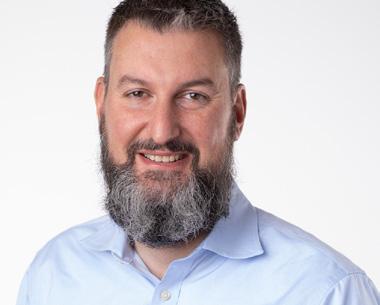
during a series of virtual roadshows that we conducted in 2021, supported by our partner CanAge.
One of themes that came out of these consultations was about access and equity; that is to say, the need for equitable access to technology and the infrastructure required to get online. AGE-WELL advocates for such access for older adults.
We also work hard to ensure governments enact the right policies that will benefit older adults and caregivers. We have submitted 77 policy briefs to governments at all levels, on pressing issues such as social isolation, elder abuse and the impact of COVID-19 on seniors. AGE-WELL is seen as a go-to authority by decision-makers. With researchers spread across the country and four national innovation hubs (based in British Columbia, Ontario and New Brunswick), we bring expertise and experience rooted in regional centres.
For all the amazing innovations we are known for, we recognize that technology is not a replacement for people. The technologies being developed within AGE-WELL are among the tools in the toolbox that we use to support healthy aging. Never before has there been a better opportunity for technology to help people age well.
COVID has shown how much work there is still to do if we are to get the necessary tools into people’s hands to live safely, independently and healthily, and to support necessary shifts in health care delivery. Each year, we are moving the dial when it comes to supporting older adults and caregivers, and generating social and economic impact.
AGE-WELL is transforming the culture of innovation in technology and aging, leading the way by bringing together different disciplines and sectors and actively involving older adults and caregivers. We call this the AGE-WELL way.
We work across the full breadth of the innovation pipeline, from early-stage research to implementation and commercialization. In the current phase of AGE-WELL, there is a growing emphasis on implementation projects
with the goal of fast-tracking innovations into the real world. In this report, you will read about AGE-WELL’s new AgeTech Implementation Response (AIR) Program, which is laser focused on implementing and scaling up validated AgeTech products in different settings, from retirement residences to private homes.
Each year, we gather an ever-growing number of people who are passionate about AgeTech and the unprecedented opportunity it offers. In 2021, AGE-WELL hosted AgeTech Innovation Week, a unique virtual event that attracted more than 1,200 attendees from across Canada and around the world. More recently, we welcomed hundreds of delegates in person at the AGE-WELL Annual Conference, held in Regina, Saskatchewan. It was also the setting for the always exciting AGE-WELL National Impact Challenge (see page 26).
Of note, AGE-WELL co-hosted a special event in the last fiscal as part of the Federal/Provincial/Territorial Ministers Responsible for Seniors Forum stakeholder symposium on “The Future of Aging in Canada.” After the event, held in June 2021, the Ministers announced that technology for aging in place is one of the top priorities of the Forum over three years.
Our network’s commitment to the principles of equity, diversity and inclusion (EDI) led to the naming in 2021 of Dr. Azadeh Yadollahi as Network Advisor in EDI. Dr. Yadollahi, a senior scientist at the KITE Research Institute at University Health Network and assistant professor at the University of Toronto, is also EDI champion for our new EPIC-AT training initiative.
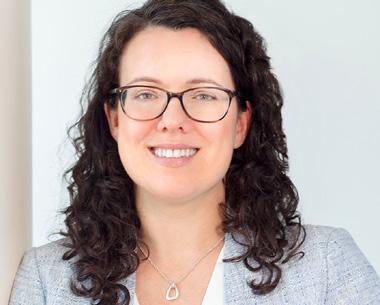
On behalf of the AGE-WELL leadership team, I want to acknowledge and thank the many people and organizations who make AGE-WELL’s work possible. We are indebted to our funder, the Networks of Centres of Excellence, and our host institution, the University Health Network, and to KITE and the University of Toronto. We are also deeply grateful to the AGE-WELL Board of Directors, committee members, researchers, trainees, staff members, partners, older adults and caregivers who work so tirelessly to improve lives.
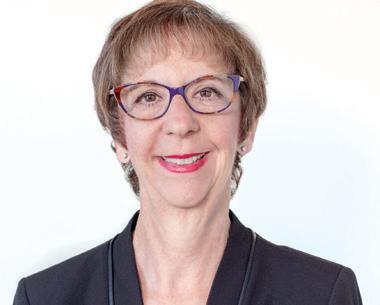
These are just some of the AGE-WELL-supported products that are helping older adults maintain their independence, health and quality of life, and supporting caregivers:
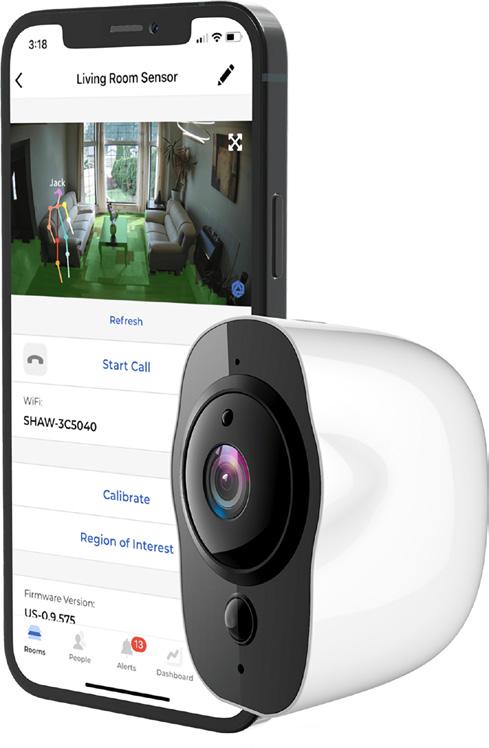
Sentinare 2 is a smart activity sensor developed by AltumView for senior care and home health monitoring. By detecting and analyzing human activities, Sentinare can show health trends and send alerts when emergencies such as falls are detected. Unlike traditional cameras, Sentinare only transmits stick figures instead of videos for privacy protection. It is a CES 2021 Innovation Award Honoree, and has been selected by Amazon as one of only three fall detection devices for its new Alexa Together senior care service. Sentinare has also been adopted by customers from other countries, including Canada, Japan, China and Hong Kong.
For many people living with dementia, like Paul Lea (pictured above), one of the challenges is keeping track of medications. MAXminder™ is a personal aide for older adults with mild cognitive impairment, scheduling and reminding them and their caregivers about medications and daily activities. The app is now available through app stores. It was designed for and tested by people with lived experience, says project lead Dr. Jeff Jutai (University of Ottawa) who developed MAX with Dinis Cabral, CEO at JLG Health Solutions of Ottawa.
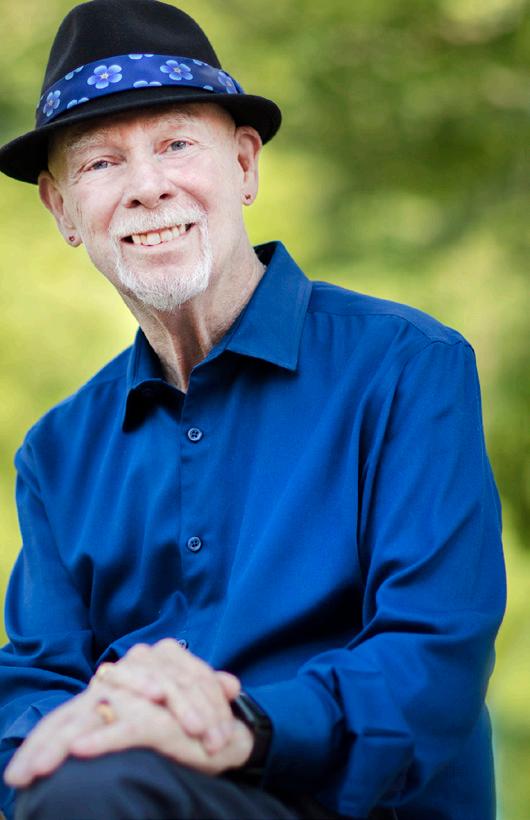
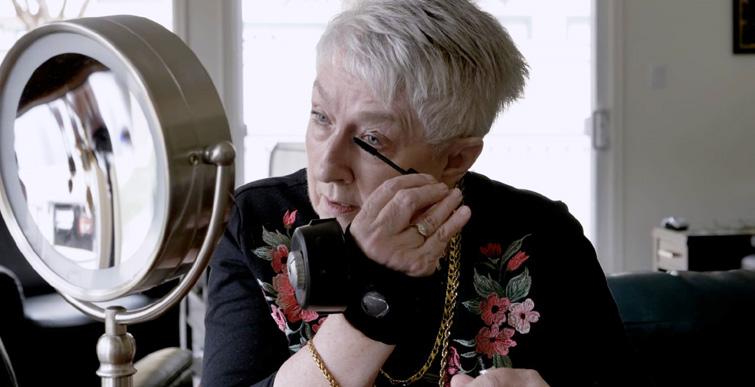
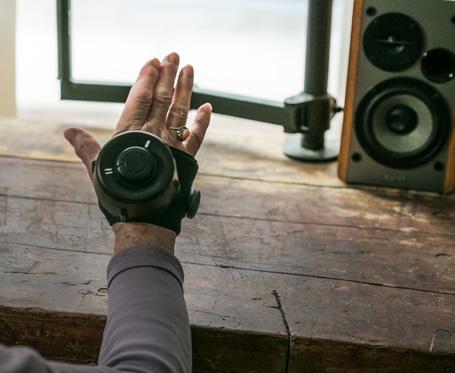
The Steadi-Two is a lightweight, battery-free glove designed to “intelligently” reduce tremors by stabilizing the wrist joint and forearm in people living with Essential Tremor and Parkinson’s disease. Developed by Steadiwear Inc., an AGE-WELL startup, this class I medical device is now on the market and making a difference in people’s lives. It is inspired by a design used to stabilize buildings against earthquakes – a technology called magnetic tuned mass damping.
A mobile app for older adults recovering from total knee replacement and hip replacement surgery continues to grow in popularity. Designed by a physiotherapist, the app is intended for use at home and provides daily video-guided exercises, reminders and checklists. The user can measure their knee movements with a mobile phone, as described in a 2022 paper published in the International Journal of Sports Physical Therapy. The app was created by Nirtal Shah, CEO of Curovate, with Dr. Johnathan Rose (University of Toronto) and support from AGE-WELL.
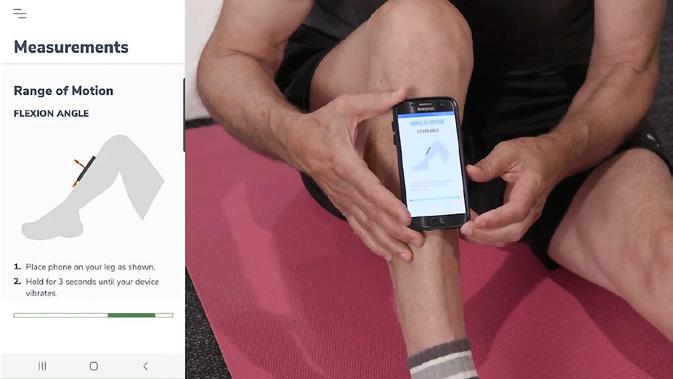
An interactive web-based platform to provide pain education for long-term care staff in rural and remote areas has led to dramatic increases in pain assessments for residents. With support from AGE-WELL, the University of Regina team that developed the platform has also created an app (in collaboration with Dr. Eleni Stroulia and her University of Alberta team) that staff can use to assess pain, replacing cumbersome paper forms. Pain is undertreated in long-term care because people with severe dementia often cannot speak up when they are in pain, says Dr. Thomas Hadjistavropoulos, who holds a Research Chair in Aging and Health at the University of Regina.

GERAS DANcing for Cognition & Exercise (DANCE) is an evidence-based dance program for older adults looking to improve their mind-body health. A virtual version of GERAS DANCE rolled out nationally when the pandemic hit to keep older adults healthy and active. The program reached a major milestone in 2022 when it partnered with the YMCA of Hamilton Burlington Brantford to offer virtual programming and train new certified instructors in 15 cities across Canada. Its co-creator, Dr. Patricia Hewston (McMaster University) received an AGE-WELL Emerging Entrepreneur Award in 2021.
A growing number of seniors’ homes in Canada and Australia are equipping beds with Sleepsense, a device that monitors residents’ vital signs and sleep quality, and notifies caregivers if a resident is out of bed or has not returned to bed. Developed by Tochtech Technologies, which won a 2020 AGE-WELL National Impact Challenge competition, Sleepsense replaces traditional bed pads with the added feature of centralized monitoring, providing real time status information about residents, to improve quality of care and staff efficiency. Additionally, its sleep tracking data feature provides input for care plans, and its repositioning feature supports improved wound care outcomes.
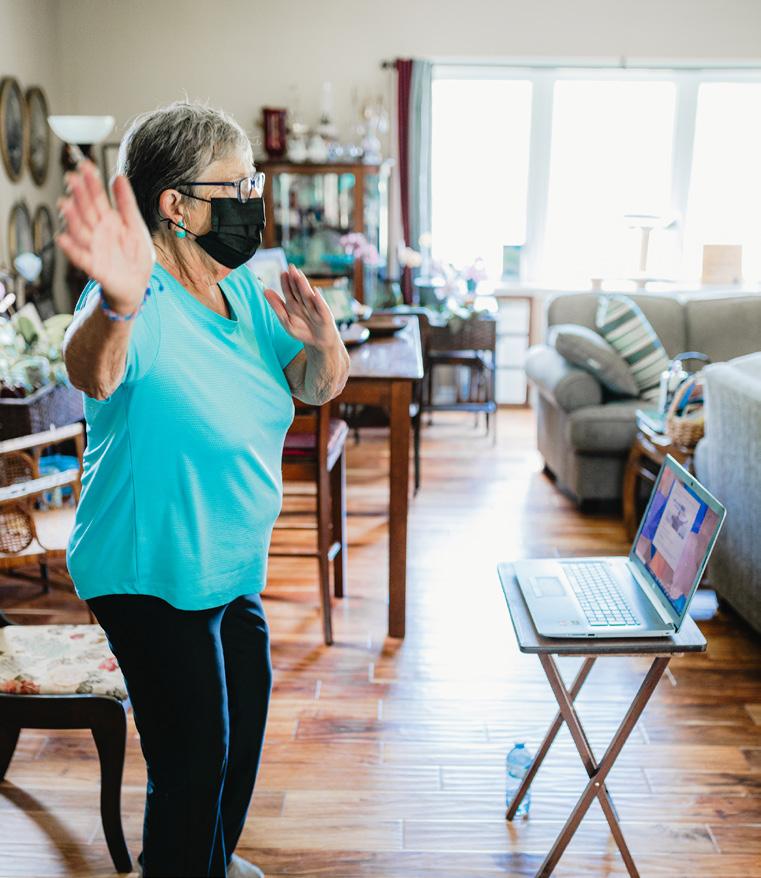
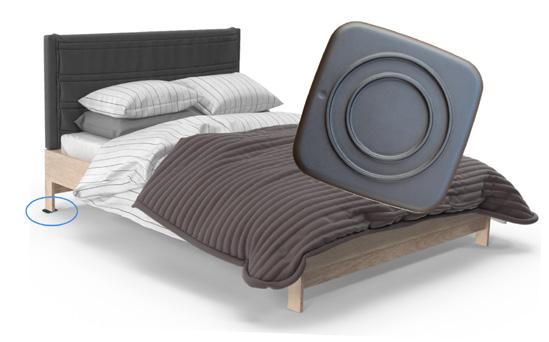
Tenera Care, makers of a wearable monitoring and contact-tracing system, received federal funding to produce 5,000 units of its device for demonstration and installation in select long-term care homes across North America. The system pinpoints the location of residents, staff and visitors in real time, and alerts staff if a resident falls or goes into the wrong room. It can be used for contact tracing, and also to analyze health patterns of residents, helping to inform individual care plans. Tenera Care is an AGE-WELL startup affiliate.
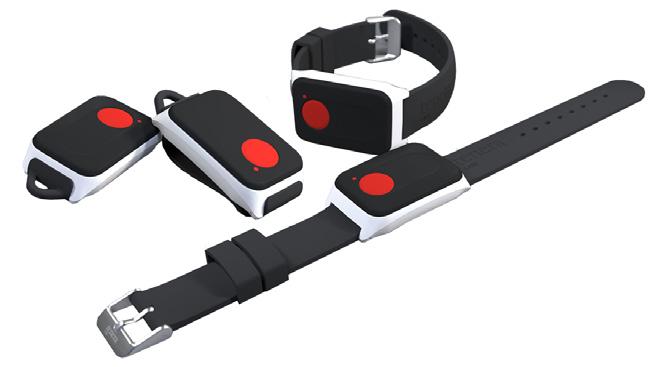
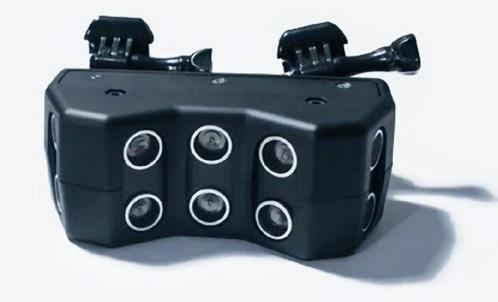
Braze Mobility Inc. continues to roll out its blind-spot sensors that can turn any wheelchair into a “smart” wheelchair. The AGE-WELL startup recently announced a partnership with US Rehab, a division of VGM & Associates, making Braze’s sensors available to its members across the US Braze is also a SAM-approved US Government vendor and can sell directly to the US Department of Veterans Affairs. The company’s sensors are selling globally to increase safety and independence for wheelchair users everywhere, says Braze CEO Dr. Pooja Viswanathan.
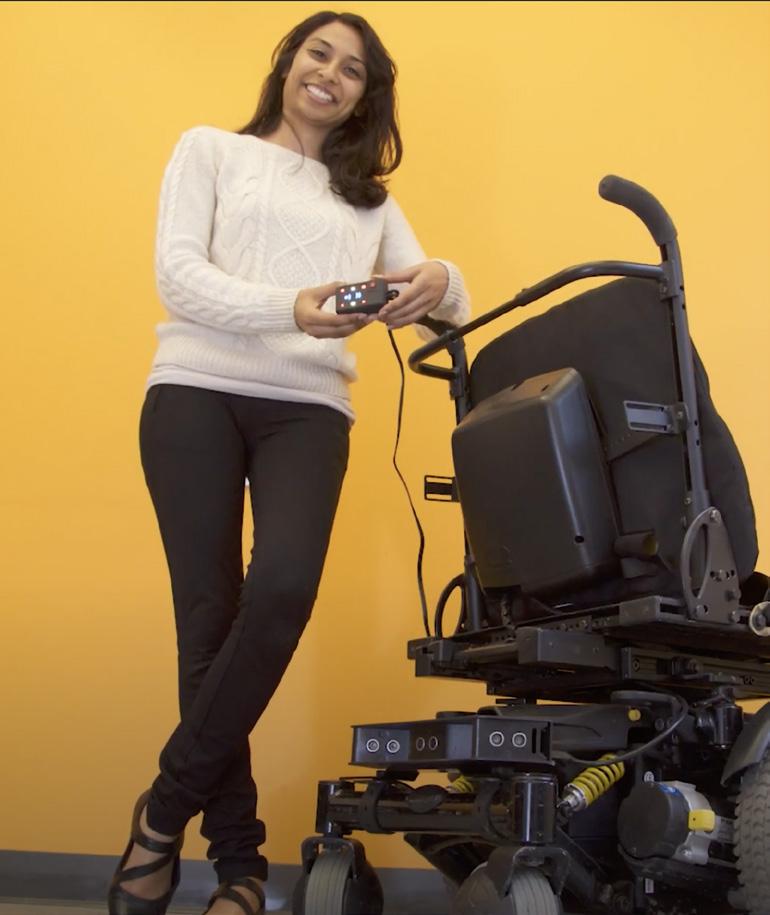
More and more senior living communities and long-term care homes are using a wellness platform developed by Ottawa startup Welbi. Bria Communities and Responsive Group Inc. are among the latest companies to select Welbi’s platform, which is designed to deliver personalized experiences to residents. The startup has recently launched individual program recommendations and personalized activity calendars for residents. Welbi, which has expanded to the US, is an AGE-WELLsupported startup.

Physical and cognitive function tend to decline with age. “If you think of the brain as a really complex machine doing lots of different things, that machine can break down in many different ways,” says Dr. Mark Chignell, a University of Toronto professor. Exercise is key, he says. “As you exercise, you improve blood flow, you improve metabolism, you reduce blood pressure. And basically you take the pressure off the brain.”
But how to motivate activity and make it rewarding for older adults living in long-term care homes, retirement residences and their own homes?
Dr. Chignell and his team at Centivizer Inc., an AGE-WELL startup, created a set of interactive and rewarding technology-based activities to promote physical and cognitive health.
With the 2RaceWithMe exergaming product, players can use hand pedals, foot pedals or both. When they start pedalling, they press a button to choose a video that could, for instance, have you travelling a mountain road or visiting a favourite city.
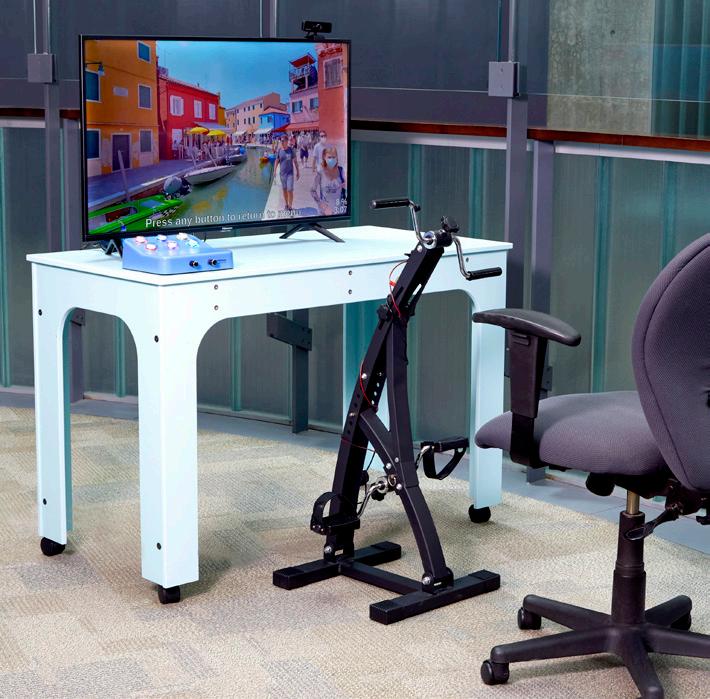
“To watch the video, they have to exercise – and that becomes very rewarding for people. They are willing to exercise just to see the content.”
Players can also communicate with friends and family through the game, and challenge others to a virtual race. The technology allows users or family members to view a progress report online.
“It’s entertaining, good for you and strengthens your muscles,” says Ellen Saunders, a resident of York Care Centre in Fredericton, New Brunswick. Saunders had a stroke several years ago that left her paralyzed on her left side. Before that, she liked to go walking, camping and bowling.
“I have arthritis in my right hand and it causes my hands to go numb every night, but since I started with the program, my hands aren’t numb anymore in the morning. And it’s helped my shoulder, which was really sore.”
“I love it. I would highly recommend it to anybody,” says Saunders.
Centivizer products are being rolled out in Canada by organizations like Faubourg du Mascaret and the Centre for Innovation and Research in Aging. 2RaceWithMe has already been sold to a number of locations and is currently being used in five Canadian provinces.
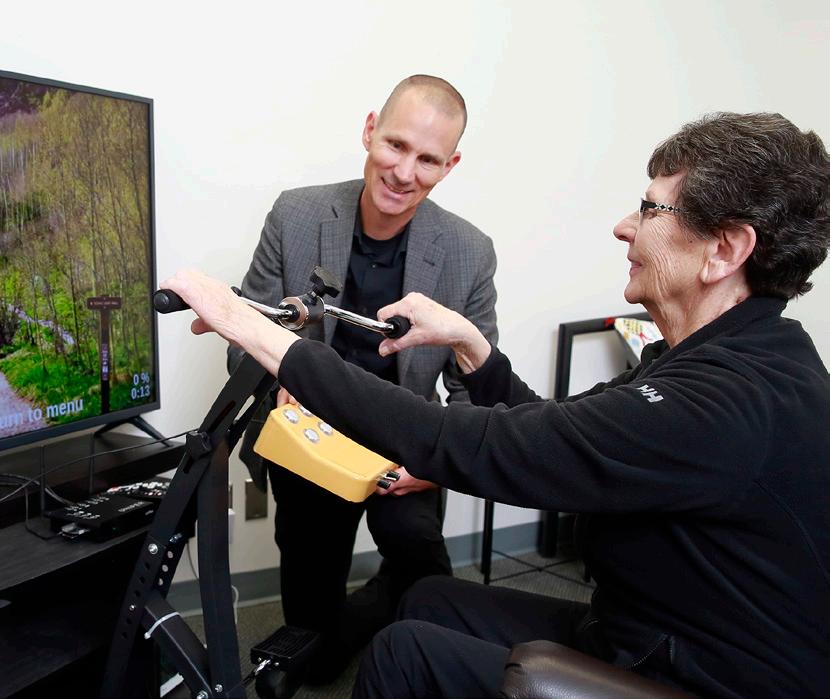
“It’s an amazing feeling when you see a product that you’ve worked on for so long actually getting used and getting used successfully,” says Dr. Chignell,” founder and president of Centivizer Inc.

Centivizer wouldn’t be here without AGE-WELL. AGE-WELL has basically been instrumental in everything we do. It’s given us funding, it’s given us direction, it’s given us opportunities to demo our work. Any aspiring entrepreneur could benefit from the services that AGE-WELL provides.”
Dr. Mark Chignell, founder and president, Centivizer Inc.
The focus of AGE-WELL research is on realworld products and outcomes. It’s all about making an impact on the lives of older adults and caregivers. More than 170 technologies, services, policies and practices are in development or already bringing benefits, with a further 40 products on the market from network startups.
Our researchers work closely with partners from multiple sectors and, crucially, with older adults and caregivers. This ensures that the products we create are user-friendly and life-changing. Every AGE-WELL research project relates to key aspects of seniors’ lives – we call them Challenge Areas – where technology can make a difference, and generate socio-economic returns for Canadians. (See our eight Challenge Areas on pages 44-45.)
In 2021-2022, we managed and supported 31 projects through these research programs:
Core Research Program:
Consists of 18 three-year research projects. It is the largest research funding program in the network.
Platform Project Program:
Consists of 4 three-year projects that will benefit all projects across the network.
AgeTech Implementation Response (AIR) Program:
Launched in 2022, AIR supports 9 projects. It is focused on implementing and scaling up validated AgeTech innovations in a variety of settings.
I have to take my hat off to all the work that AGE-WELL does, not just in terms of agenda-setting, but substantially fine research that is moving innovation forward in the lives of people – older adults and caregivers alike.”
Dr. Joseph Coughlin, founder and director, MIT AgeLab
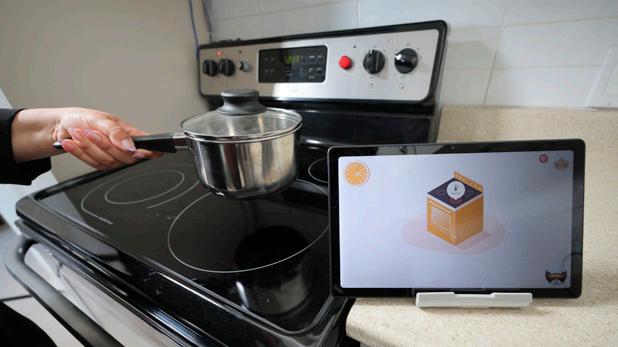
Amel Yaddaden is developing an intelligent cooking assistant to promote safety and independence at home. “COOK” is designed to guide a person through meal preparation, while preventing at-risk situations. Yaddaden is a PhD candidate at the Université de Montréal, and an AGE-WELL trainee. The project is led by Dr. Nathalie Bier.
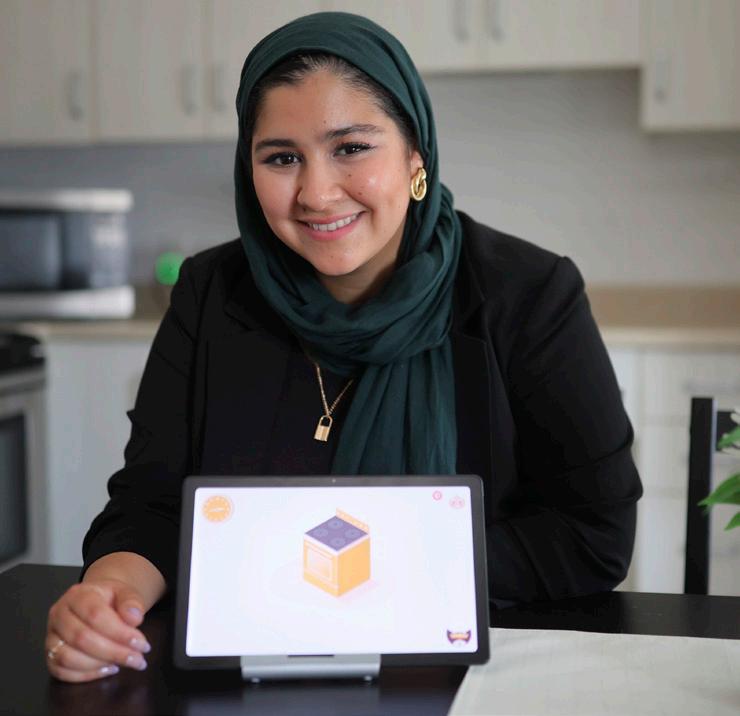
We also continue to support four AGE-WELL National Innovation Hubs in the key areas of policy (Fredericton, N.B.), sensors and analytics for mobility and memory (Ottawa, ON.), digital health solutions (Surrey, B.C.), and technology adoption in rural and remote settings (Prince George, B.C.). For details, see page 21.
Our research is highly responsive and highly relevant. We were quick to tackle the particular problems presented by the COVID-19 pandemic through targeted funding, research pivots and project add-ons. From in-home rehab apps to social platforms and systems that connect, AGE-WELL teams are addressing the needs of today and post-COVID.
We know that Canadians want to age in the setting of their choice. Technology-based solutions are needed to support older adults to stay independent, active, healthy and connected, to enable aging in place, and to transform care across all settings.
For example, researchers at our innovation hub in Ottawa are developing a wandering detection and diversion system which uses motion, contact and bed sensors to detect a sleeper’s movements if they wander out of bed. Another team has created an “intelligent” cooking assistant to enhance safety and support independence at home (see above).
For long-term care (LTC) homes, where there has been so much loss and suffering, technology can enhance safety and quality of life for residents. It can also make it possible for staff to spend more time one-on-one with residents. One example of many is the ALTA Platform™, which allows a single caregiver to transfer a person to and from a bed, without contact and without risking injury to either, in a dignified manner. The device was developed by Able Innovations, with AGE-WELL support. Another example: technologybased activities that engage residents in physical and cognitive exercise, created by AGE-WELL researcher Dr. Mark Chignell and Centivizer (see page 12).
Equitable access to technology is a human right. But not all Canadians have equal access and ability when it comes to digital determinants of health – especially older Canadians who live in rural communities. Reliable high-speed internet access, appropriate technological devices and digital literacy have become key digital determinants of health that impact how connected Canadians are to their friends, families and even public services like health care.
AGE-WELL supports research involving underserved populations, and advocates for equitable access to technology for older adults. Take the work being done by CTAAN, our innovation hub in northern B.C., which is breaking down barriers to the adoption of technologies that can help older residents of northern and rural communities to age well.
The development of a culturally safe, Indigenous-led diabetes and weight management telehealth service for Indigenous older adults is the focus of another AGE-WELL team.
When automated vehicles are part of daily life, we want to ensure that everyone can take advantage. AGE-WELL researchers are leading a new line of research on accessibility of automated vehicles for older adults, including those with cognitive impairments. Their work will inform policies and services designed to ensure the access of future automated vehicles for these individuals.
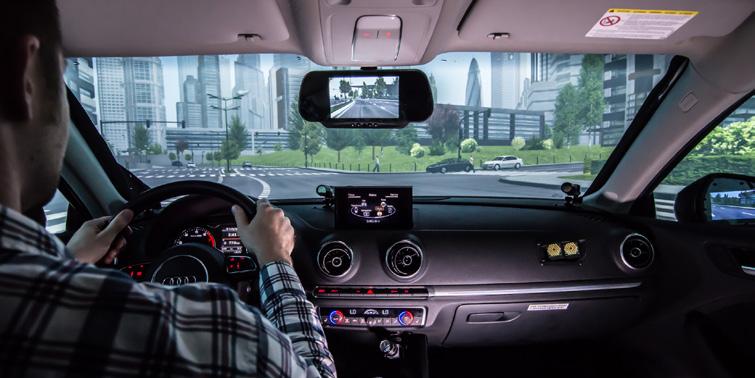
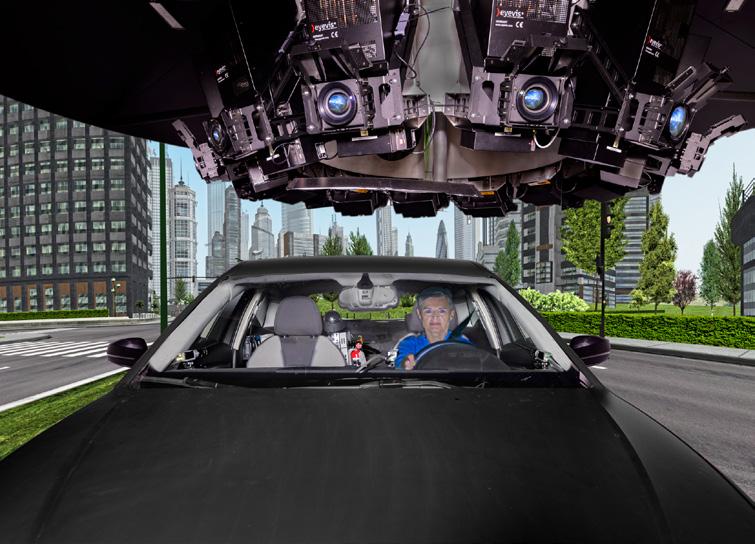
AGE-WELL is about developing technologies that genuinely support older adults and family carers by involving them from the beginning of the design process so that the tools that emerge are going to be ones that actually address their needs.”
Dr. Janet Fast, AGE-WELL researcher and professor, Department of Human Ecology, University of AlbertaThe DriverLab simulator at the KITE Research Institute at UHN.
Residents at a retirement home in Sherbrooke, Quebec try out a socially assistive robot that can track and follow a person’s face, dance and report the weather. The robot can help with daily activities and telehealth.
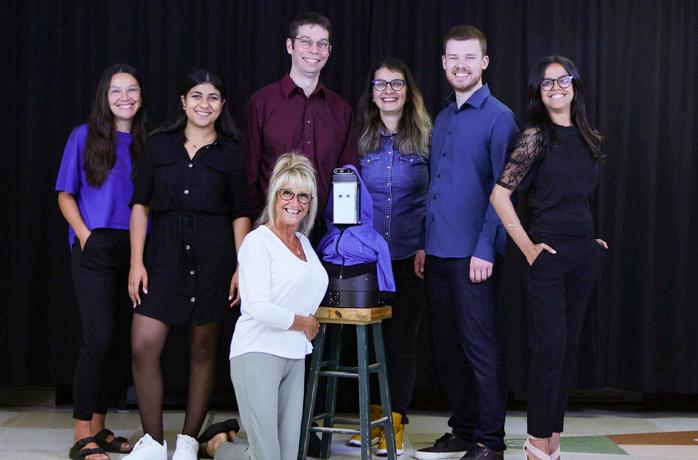
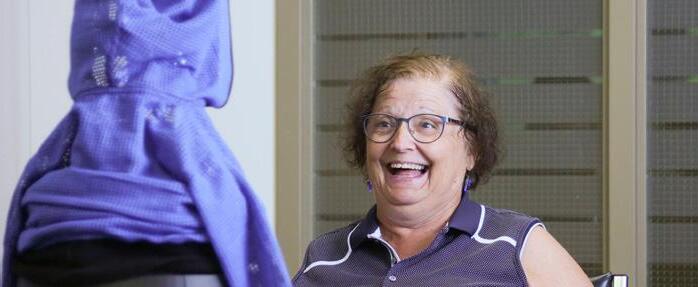
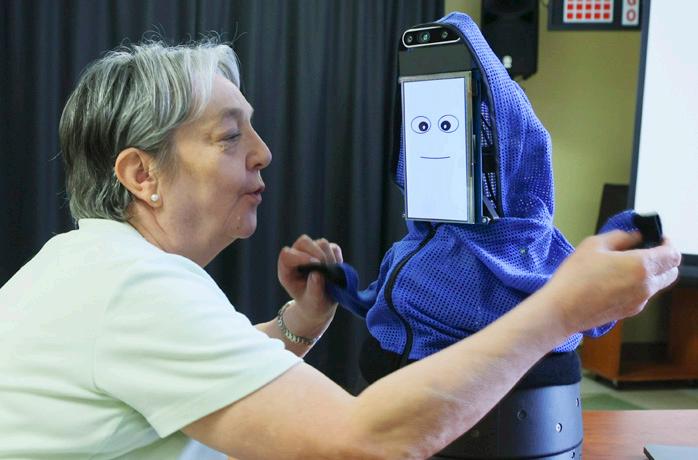
AGE-WELL’s scientific directorand CEO Dr.Alex Mihailidis was tapped in 2021 to lead the development workforthe CSAGroup of a new draft national standard forlong-term care homes.The draft standard provides guidance on safe operating practices and infection prevention and control. It also covers topics such as organizational commitments, design, systems including HVAC, training and technology.
Afinal version ofthe standard will be published bythe end of 2022.Adraft version was released earlierthisyearforcomments and questions. The CSAGroup engaged widelyto help ensure that the perspectives of residents, families, caregivers and professionals were incorporated into the development ofthe draft standard.
“The core goal of long-term care should be qualityof life – including safety, but in balance with otherphysical, social, mental, emotional and spiritual considerations,” said Dr. Mihailidis, chairofthe CSAGroup’s technical subcommittee on long-term care. “The pandemic laid bare manyshortcomings in long-term care, and there is a national consensus that we must do better.”
CSAGroup is collaborating with Health Standards Organization (HSO), which is developing a complementarynational standard to ensure that long-term care residents receive the quality of care theydeserve.
“The standards are meant to ensure that residents of long-term care receive safe, reliable and high-qualitycare, supported bya strong and resilient workforce, in appropriately designed settings,” said Dr. Mihailidis.
Drs. Jennifer Campos and Josephine McMurray were appointed as associate scientific directors of AGE-WELL in April 2022. Distinguished researchers and leaders, they bring tremendous knowledge and experience to their new roles.
Dr. Campos is a Canada Research Chair (Tier 2) in Multisensory Integration and Aging. She is associate director, Academic and senior scientist at The KITE Research Institute at University Health Network, and an associate professor in the Department of Psychology at the University of Toronto.
Dr. Josephine McMurray is an associate professor at the Lazaridis School of Business & Economics at Wilfrid Laurier University. She teaches in the Business Technology Management Program in the School of Business & Economics, and is a member of the Community Health Faculty.
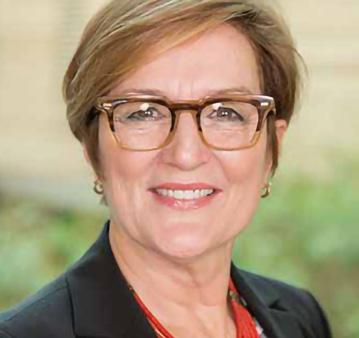
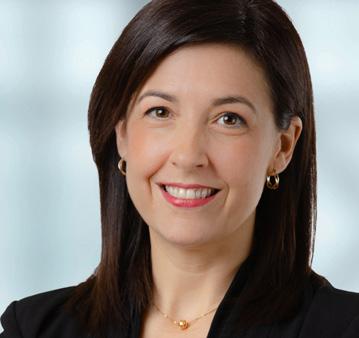
With their wealth of expertise, Drs. Campos and McMurray are advancing the vital work AGE-WELL is doing to accelerate the delivery of technology-based solutions that support healthy aging and generate economic returns for Canadians.
Medication and daily life management app and service for people living with dementia
Smart-home technology for aging in place (sensors, lighting, voice-activated reminders and prompts)
Apps and remote therapies to help people manage their health at home, while staying connected to health professionals
Non-intrusive health monitoring technology (no video or sound recording)
Virtual exercise programs designed for older adults
Digital games that connect, stimulate and encourage learning
Socially assistive robots that prompt older adults with cognitive impairment to do daily tasks such as getting dressed, preparing meals and exercising
After a swimming pool accident that resulted in quadriplegia at age 35, Jacklyn Carter was unsure about what her life would look like. She imagined she would need help with even the smallest tasks and her independence would be lost. As a working mother with two sons, the future felt daunting and uncertain.
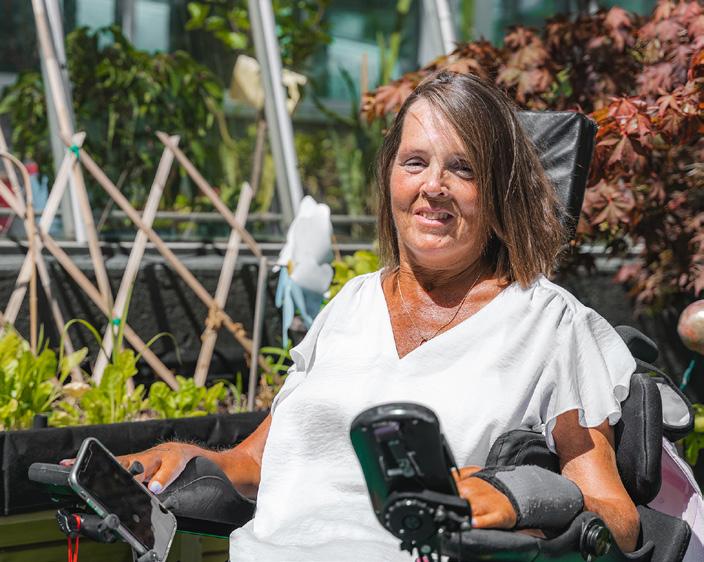
With her family now grown up, Carter is a resident of Northwood, a long-term care home in Halifax. Thanks to innovative technology that allows her to control the electronics in her room through voice commands via a smart speaker, she manages to do many tasks herself. Carter can adjust her bed, turn lights off and on, change the channel on her television, and much more. She tells the staff who come into her room to check on her that she doesn’t need them and encourages them to go take care of others.
Being able to do things herself has had a positive impact on her well-being. “It has made me a stronger person,” says Carter, one of the first at Northwood to adopt the technology. “I feel more like my old self. Though I’m not physically active, my mind is still challenged and I can do things. I’ve never liked to ask others for help so having independence is important to me.”
The technology that has changed her life was brought to fruition by the LivMoreSMARTech research project co-led by Dalhousie University and Northwood. With funding from AGE-WELL, the Nova Scotia Innovation Fund and Mitacs, primary investigator Dr. Susan Kirkland leads a large transdisciplinary research team of older adult advisors, academic and commercial partners, including Novalte, a Nova Scotia startup whose SMARTtechnology platform is being used.
The project team is analyzing residents’ use and interactions with SMART technology at Northwood’s Halifax Campus. They plan to share their learnings with long-term care homes across Canada and beyond. While data collection is still in progress, anecdotally, the team is seeing a major impact on residents, staff and the care delivery model. The SMARTech team also was excited to begin recruiting Northwood Home Care clients to the project this past summer.
For her part, Carter used the system about 5,000+ times per month during January and February of 2022.
Its intuitive design made it easy for Carter to learn. “In 10 minutes, I had it figured out,” recalls Carter, now 59 and a grandmother. “I didn’t find the technology intimidating at all. I’m comfortable with it. I used to battle with my kids over who got to use our Nintendo game system.”
When she’s not enjoying visits or shopping online for things to decorate her room, Carter serves as a powerful advocate for how technology can improve the lives of older Canadians. She does media interviews and presentations with as many as 1,000 attendees. “I believe I have a reason for why I was put on earth,” she says.
The motivation to share her story about the positive impact the voice-activated system has had also comes from her friendship with Michael Cullen, CTO and founder of Novalte. “Michael introduced me to a whole new world with his technology,” explains Carter. “He opened a door for me. I would do anything to help his voice be heard through me. He is amazing. He has changed my life and that of others in such a beautiful way.”
Empathy is an invaluable quality for anyone involved in trying to improve the lives of older Canadians. Sara Aghvami has it in abundance. As director of Best Buy Health at Best Buy Canada, she is a leading advocate for using technology to support healthy aging, partnering with AGE-WELL and serving as a member of its Industry Advisory Committee.
Her ability to understand someone’s needs has roots in unexpected places. As a student trying to pay off debts in 2000, Aghvami took a part-time job in customer relations at Future Shop (acquired by Best Buy in 2001). Dealing with people who were sometimes unhappy taught her much about seeing situations from different points of view. She later became a parts buyer and then ended up running the department, which helped her learn the “guts of technology.” From there, she went on to lead new teams and changes in key areas such as customer experience and home delivery.
This diverse knowledge comes from a holistic place and has served her well heading up Best Buy Health, launched in Canada four years ago. Focused on the healthy aging sector, it made sense for the company because of Best Buy’s long history of providing tech solutions for customers. “We have the largest footprint in the US and Canada in the consumer electronics retail industry,” Aghvami explains. “We are able to invest in creating accessible technology services to help older adults with their independent living goals.”
Never far from her mind is her mother, a nurse who worked with older adults, providing support in their homes, communities and long-term care settings. She would come home and talk to her daughter about her experiences. Aghvami never forgot the stories about older adults having to wait for someone to come help them. “That fact has remained with me throughout my
professional and personal life,” she says. “It inspired me to work on enabling older people and reducing that kind of dependency.”
While doing research about aging, she came across AGE-WELL and attended one of its conferences. It was the start of what would become a dynamic partnership. Aghvami had been approached by other organizations to partner up, but as she learned more about AGE-WELL, something clicked.
“It’s the only organization I know to date that has set out a clear vision statement and challenge areas – along with how they are going after their goals,” she says.
“It was also the only one I have worked with where the member research partners have depth of knowledge and expertise in technology to support the spectrum of aging. Best Buy Canada is fully committed to supporting AGE-WELL’s objective by leveraging our core competencies: evaluation, implementation, scale and upkeep.”
The partnership has been fruitful. Best Buy Health is deeply involved with projects at the AGE-WELL National Innovation Hub called SAM3 which is developing smart home solutions to support aging in place. SAM3, says Aghvami, is a great example of how academic research, health care and industry can create solutions. “We are so excited about the development of human-centric solutions we can validate and talk about together.”
SAM3 is a joint initiative of AGE-WELL, Bruyère Research Institute and Carleton University.
More recently, Best Buy Health teamed up with the Centre for Technology Adoption for Aging in the North (CTAAN), an AGE-WELL innovation hub in Prince George, B.C. that supports aging in northern and rural communities by making technologies more available. Through its involvement with CTAAN, Best Buy is widening the aging in place solutions in rural and remote communities.
“We’re thrilled to be collaborating with CTAAN, which is doing so much to support technology adoption in rural and northern communities,” says Aghvami. CTAAN is a partnership between the University of Northern British Columbia, Northern Health and AGE-WELL.
For Aghvami, her work is always first and foremost about people. She has a true passion for encouraging others to be and to do their best. She has mentored young professionals for more than 15 years, teaching them not only to be successful in business but to let their humanity shine through as they do it. Whether guiding others or finding technology to support older Canadians, Aghvami has a single motivation: “Why all this matters is because there is a human at the end of each of our ventures, a human who can benefit from something that can make a life that can be lived better.”
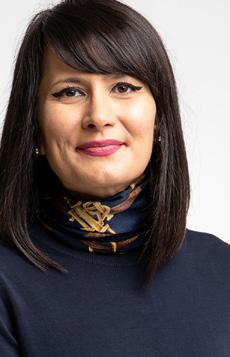
The mission of AGE-WELL National Innovation Hubs is to engage a range of stakeholders in a specific location to advance innovation and adoption of technology-based solutions, policies and practices for healthy aging.
AGE-WELL has four hubs:
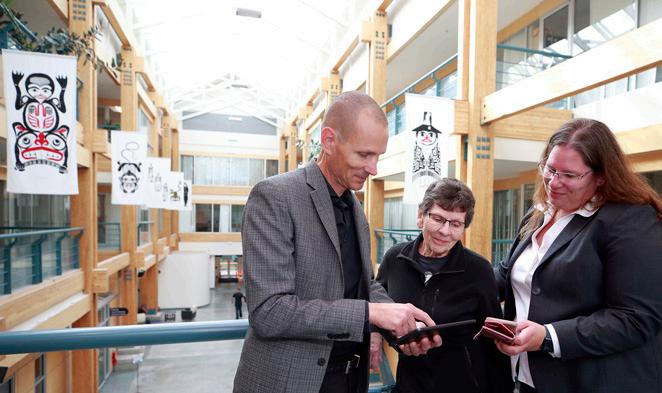
Prince George, B.C.
CTAAN supports aging in northern and rural communities by making technologies more available to older adults, caregivers, and the health care systems that support them. Built on a partnership between the University of Northern British Columbia, the Northern Health Authority and AGE-WELL, CTAAN’s programs focus on testing, piloting, implementing and promoting new and existing AgeTech solutions tailored to northern and rural communities.
Launched in 2020, CTAAN has established a network of partners to allow for the testing and validating of AgeTech in real-life settings. CTAAN employs a partnered approach to ensure technologies enable, empower and engage those aging in northern and rural areas.
Circle Innovation is a non-profit facilitator of technology solutions and innovation based in Vancouver. Circle helps companies connect with consumers, tech providers and other stakeholders to solve R&D challenges, grow revenues, create jobs, and develop emerging technologies across Canada. It supports small and medium-sized enterprises (SMEs) that have already grown past the startup phase, have some degree of market validation, and have shown that their business is ready to scale up.
Over the past six years, Circle has worked with companies like Ayogo Health, ALAViDA, Cherry Health, BC Tech, Curatio, myMomentum, Kintec, Fraser Health Authority and the Digital Technology Supercluster, to name a few. Founding members of Circle Innovation are Simon Fraser University and AGE-WELL.
ON.
SAM3 is driving the development of sensor-based smart technologies that monitor older people’s health and well-being to keep them healthy, safe and as independent as possible. The hub is a joint initiative of AGE-WELL, Bruyère Research Institute and Carleton University.
In the past year, SAM3 has worked on projects with startups and research partners, including Tochtech Technologies and the National Research Council of Canada. The work with Able Innovations Inc. now focuses on the first clinical trial of the startup’s innovative new patient-transfer system. Projects with Best Buy Health and TELUS continued through the year.
Fredericton, N.B.
APPTA supports governments in generating opportunities to assess the policy and practice challenges of an aging population. This hub is a partnership between AGE-WELL and the New Brunswick Health Research Foundation (NBHRF).
APPTA maintains strong connections with the federal, provincial and territorial governments in Canada by hosting regular one-on-one meetings with policy partners. In 2021-2022, APPTA initiated a new round of engagement with its policy stakeholder network and received 43 submissions for policy questions that required the support of research evidence, a process led by APPTA in consultation with AGE-WELL researchers. APPTA also launched Research Roundup, a new knowledge product. The first issue, released in February 2022, focused on social prescribing.
AGE-WELL has played a big role in getting us to where we are. I have worked with numerous networks but none has the same focus and passion about their mission as AGE-WELL, and I believe it has translated to helping companies like us that are trying to make a real difference.”
AGE-WELL is strengthening Canada’s AgeTech sector in so many ways. We currently support over 60 Canadian AgeTech startups, with 44 products being sold on the market.
Survey data shows that these companies have raised almost $54 million, created over 260 jobs and provided 342 trainee opportunities, like internships. Importantly, more than 30,000 older Canadians and caregivers have benefited from products created by these companies.
We support startups and entrepreneurs in very concrete ways: funding, mentorship, competitions, expert services, access to market opportunities and much more. Our chief entrepreneur Michael Tamblyn, president and CEO of Rakuten Kobo, provides insights and guidance, drawn from a lifetime of professional experience. Startups also get invaluable feedback from older adults and caregivers who are part of our network.
To paint a picture of how the landscape is looking these days, AGE-WELL published Canada’s AgeTech Startup Map in 2022. On it you will see over 100 startups that are spread across the country, making an impact on people’s lives and generating social and economic benefits.
On pages 28-29, we profile two of the companies supported through AGE-WELL’s growing Startup Affiliate program. There are many more, dealing with aging from every angle. In B.C., AltumView has developed a smart-activity sensor that can show health trends and send alerts when emergencies such as falls are detected. In Quebec, VitalTracer has created a wearable device that monitors vital signs to reduce the risk of cardiovascular diseases. In Alberta, Virtual Gym has produced a serious game platform that can be personalized to individual needs, enabling older adults to stay active.
Jayiesh Singh, CEO, Able Innovations Inc.
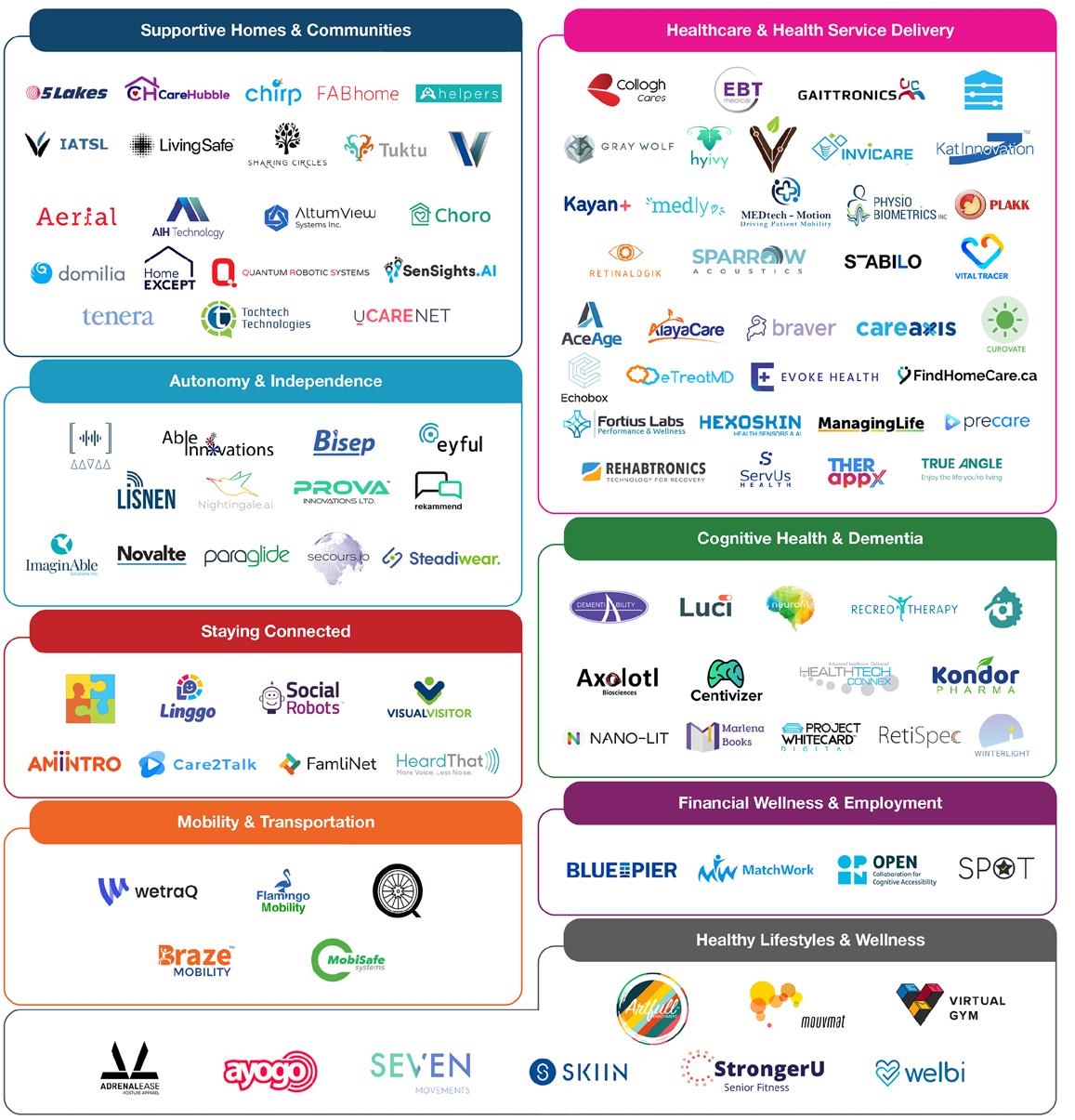
AGE-WELL’s annual conference attracted approximately 300 researchers, trainees, older adults, caregivers and partners in industry, government and the community. Held in Regina, Saskatchewan in October 2022, the conference theme was Innovating for a Better Future.
Attendees were united by the pressing need to help older Canadians maintain their independence, health and quality of life. The focus was on current issues and innovations in the field of AgeTech – and how they can change the future of aging.
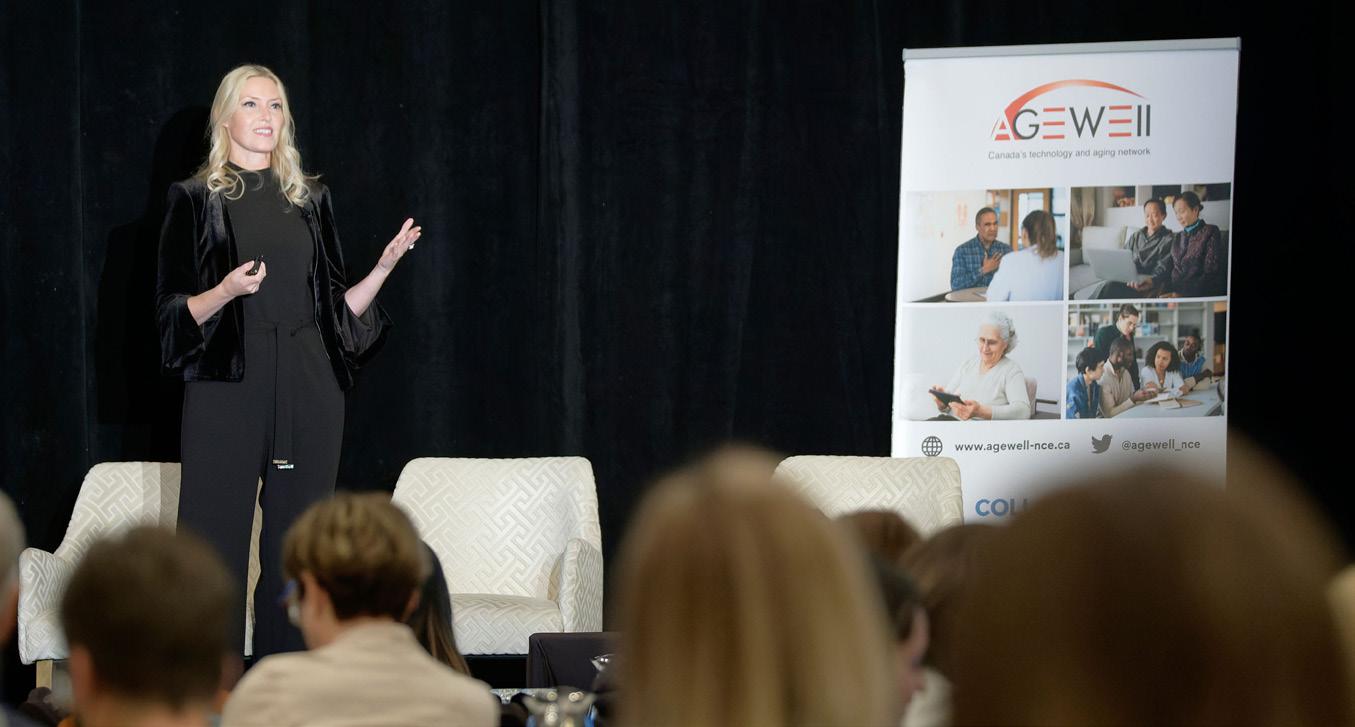
AGE-WELL 2022 showcased a multidisciplinary program of research and innovation from across the AGE-WELL network.
Sarah Thomas, CEO of Delight by Design, kicked off the conference with an inspiring keynote speech. An accomplished leader of innovation who is dedicated to transforming the aging experience, Thomas serves as a global aging expert, advising startups, large corporations and investors.
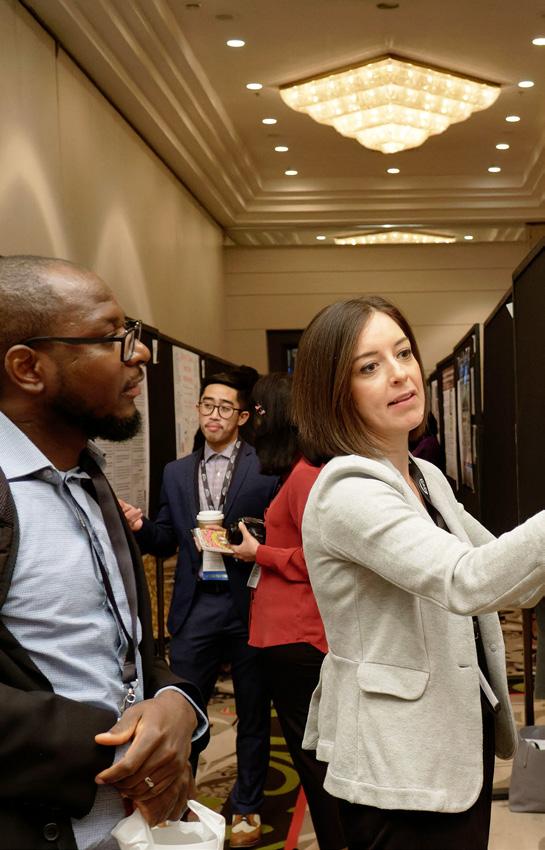
There was also a product launch at AGE-WELL 2022.
Dr. Noelannah Neubauer, a research assistant in the School of Public Health Sciences at the University of Waterloo, unveiled a unique website that offers proactive strategies to reduce the risk that someone with mild dementia will get lost, while maintaining their freedom to go where they like.
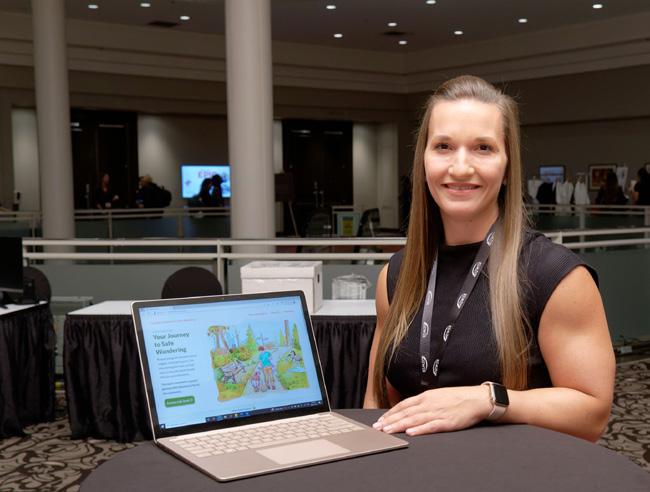
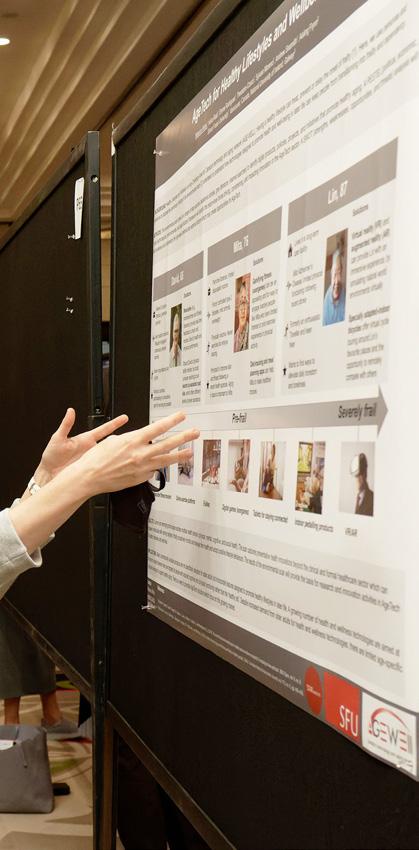
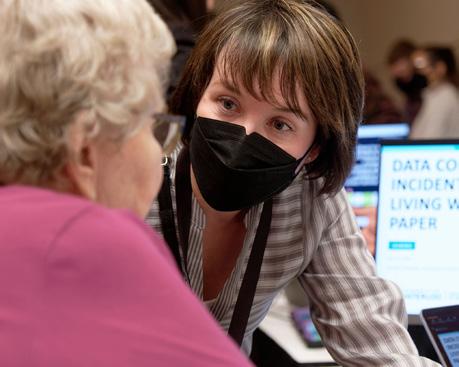
Attendees at AGE-WELL 2022 got to watch as five Canadian startups pitched their products in the AGE-WELL National Impact Challenge, one of the most exciting startup competitions happening in Canada. Finalists were challenged to explain to a panel of expert judges how their technology-based solution can positively impact older Canadians or caregivers.
Generous sponsors of AGE-WELL 2022 were: Ontario Brain Institute and the Centre for Aging + Brain Health Innovation (Gold Sponsors); Bereskin & Parr and MEDTEQ+ (Silver Sponsors); Best Buy (Student Award Sponsorship); and CARF Canada (Networking Lunch Sponsor).
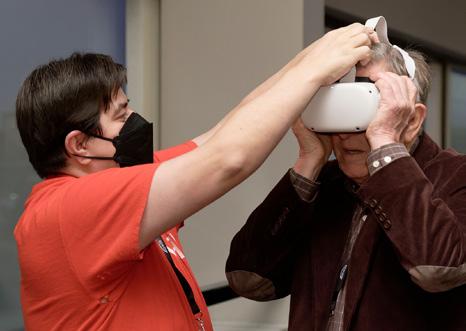
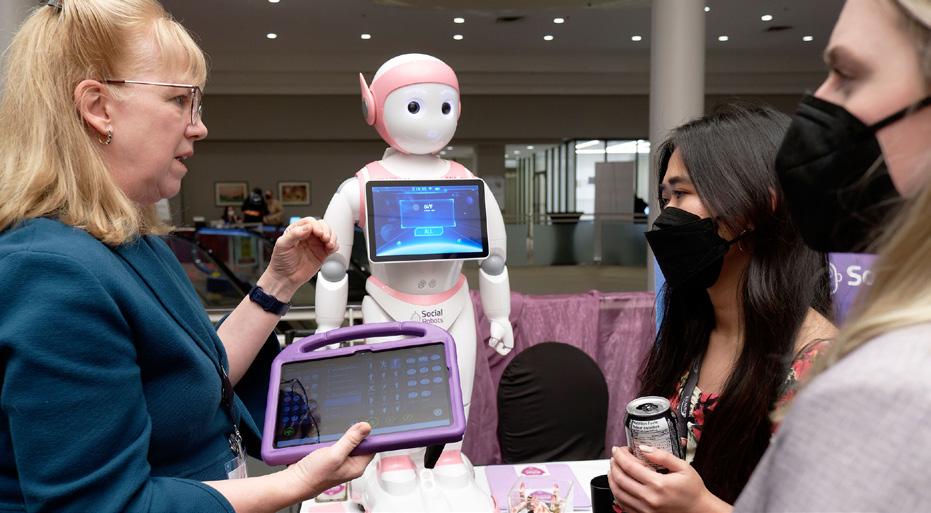
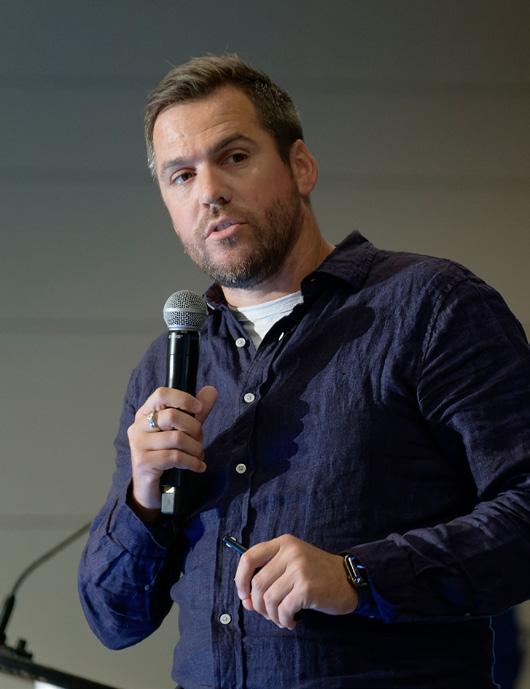
For years, we have hosted the AGE-WELL National Impact Challenge, which recognizes top startups and supports entrepreneurship in Canada’s AgeTech sector. Over 100 startups have taken part in this competition to date. The dynamic annual event is made possible by our generous sponsors.
Congratulations to Bronwyn Bridges, Co-Founder and CEO of PragmaClin, winner of the 2022 AGE-WELL National Impact Challenge. PragmaClin has created a digital assessment tool for monitoring Parkinson’s disease symptoms. Bridges said the $20,000 cash prize will go towards the next phase of validation trials, patent filing, team expansion and more.
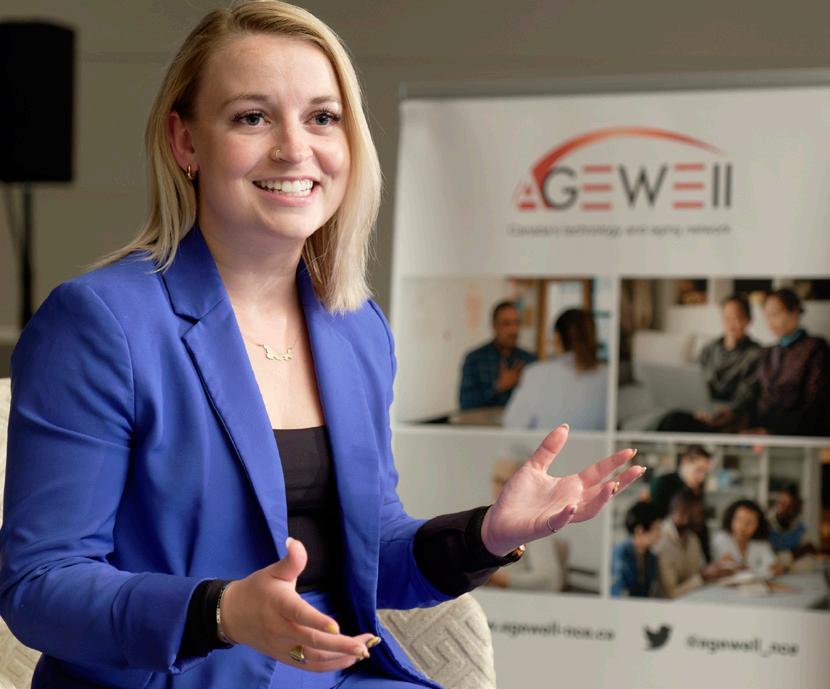
AGE-WELL thanks the generous sponsors of the 2022 AGE-WELL National Impact Challenge: key sponsor, the Ontario Brain Institute (OBI), and Bereskin & Parr.
Care2Talk Technologies received the People’s Choice Award for its accessible and intuitive communication and health platform designed to revolutionize the way seniors connect with their health care providers and loved ones.
While nurturing startups, we continue to support our researchers to get their innovations implemented in the real world. AGE-WELL’s new AgeTech Implementation Response (AIR) Program, launched in 2022, is all about fast-tracking solutions. Researchers are able to navigate commercialization and intellectual property (IP) protection with increased efficacy by leveraging industry partnerships and applying their experience.
The runner-up prize of $5,000 in cash went to Singular Hearing, which uses artificial intelligence to create new kinds of hearing assistance that help people stay connected. The company makes HeardThat, a smartphone app for those who have trouble hearing speech in background noise, such as restaurants.
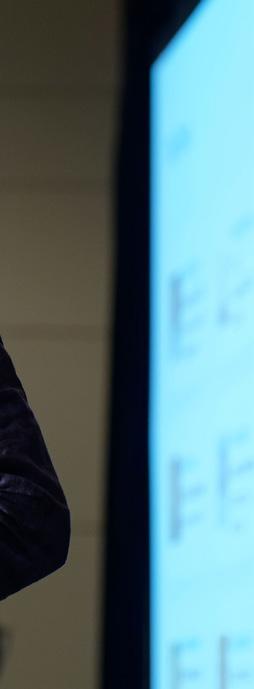
A year ago, Hyivy Health won the 2021 AGE-WELL National Impact Challenge, and ImaginAble Solutions was runner-up. Key sponsors of the 2021 competition were: OBI and the Centre for Aging + Brain Health Innovation (CABHI), with Bereskin & Parr providing the intellectual property services prize.
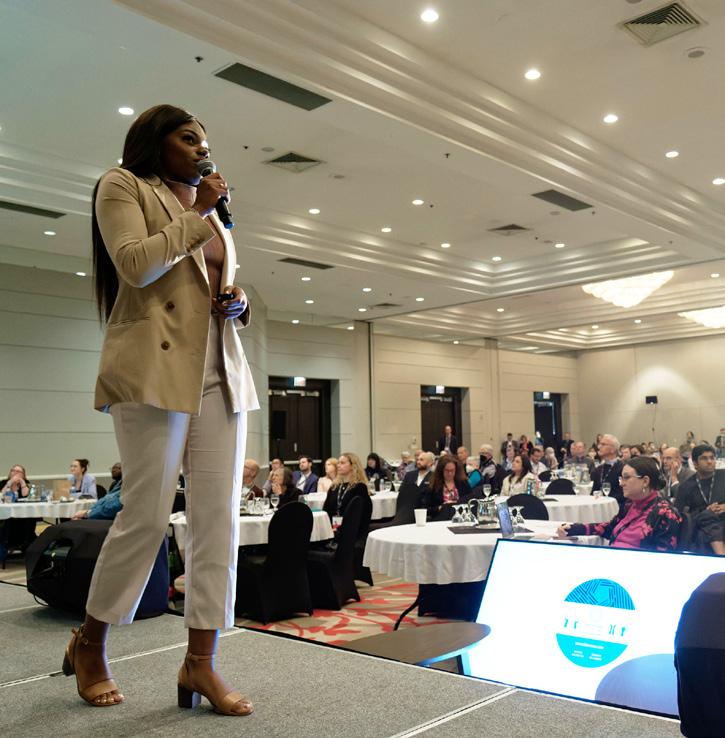
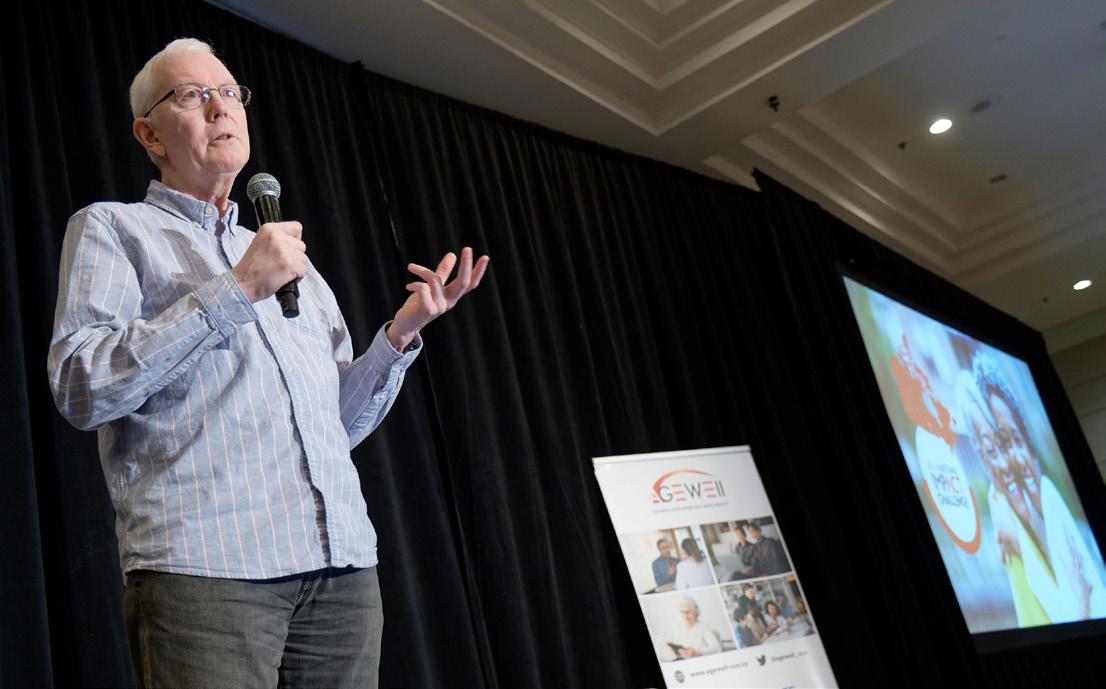
It was during a university class project in 2018 that Lianna Genovese came up with the idea for Guided Hands™, a mechanical device that helps people with limited hand mobility to reignite lost passions like painting.
“We were introduced to a woman named Elissa who lives with a rare type of cerebral palsy,” recalls Genovese, then a student of biomedical and mechanical engineering at McMaster University in Hamilton, Ontario.
“Elissa was a talented painter but as her condition progressed, she wasn’t even able to hold onto a paintbrush. I wanted to give her back her passion for painting, and her independence.”
Genovese made the first prototype of Guided Hands out of pipe cleaners, straws, a ball of yarn and a sponge. “I included Elissa throughout the design process. She used it – and it worked for her,” says Genovese.
A year later, at 19, Genovese founded her own startup, ImaginAble Solutions, with the goal of developing and bringing Guided Hands to market.
Today, Guided Hands is an international award-winning product that enables anyone experiencing limited hand mobility to write, paint, draw and access technology through touch screen devices. It has a unique sliding system that promotes controlled and guided hand movements as a user holds a hand piece tailored to their level of hand impairment.
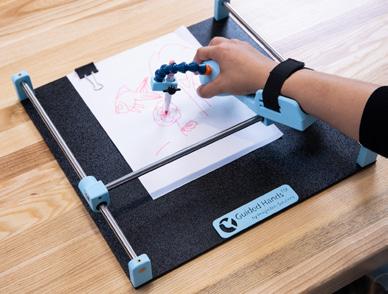
Guided Hands has been tested by more than 350 physicians, occupational therapists, neurologists and people living with limited hand mobility across North America, including those with arthritis, ALS, Huntington’s disease and recovering from spinal cord injuries and stroke.
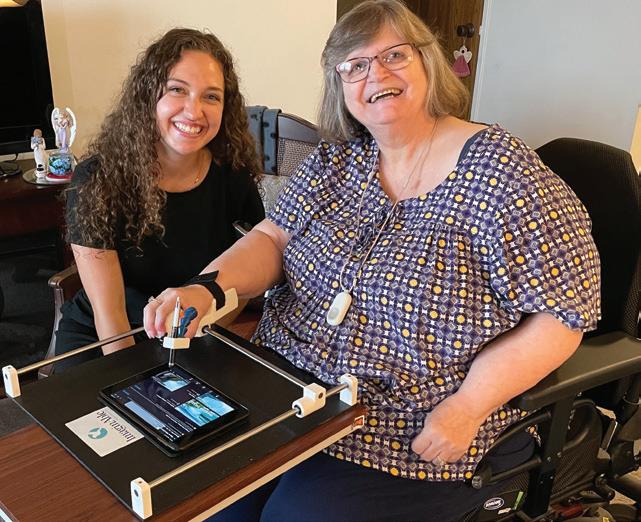
Bea Kraayenhof, who has Essential Tremor, says Guided Hands “gives you confidence” and is easy to use. “I could just put my hand in, strap in and start,” says Kraayenhof.
“Guided Hands, I feel, is something that every person who has hand problems really should have.”
Genovese, now graduated from university, says AGE-WELL’s support has been invaluable. “AGE-WELL was able to connect us with mentors, advisors and a whole bunch of different resources to help us in our journey.”
ImaginAble Solutions won the runner-up prize in the 2021 AGE-WELL National Impact Challenge, receiving a cash prize of $10,000 and an intellectual property services prize from Bereskin & Parr.
Six months later, ImaginAble Solutions won the People’s Choice Award at the Arthritis Society Canada Innovation Awards.
“Our overarching goal is to improve the quality of life of our customers, helping them to reignite their lost passions and stimulate their brains, and helping them regain their confidence and creativity – which end up contributing to their overall improved quality of life,” says Genovese.
“Every part of my journey has just been amazing and inspiring, especially seeing the smiles on our customer’s faces. It really inspires us to just keep on going and strive toward making an impact in millions of lives.”
Entrepreneur Dr. Bruce Sharpe was concerned when he noticed his father-in-law becoming more withdrawn. The older man was reluctant to go to restaurants and other noisy venues because the hearing aids he had worn for years were unable to distinguish between speech and other noises. Instead, they bluntly amplified or muted all sound, no matter if it was the clattering of dishes, raucous laughter three tables away or what the person seated directly across from him was saying.
Searching for a solution, Dr. Sharpe, who has a PhD in mathematical physics, was drawn to the world of artificial intelligence (AI), which was already working on what is popularly known as the ‘cocktail party problem.’
“Results coming out of the labs were promising but like most AI initiatives, the solution demanded a lot of power to run,” Dr. Sharpe says in an interview. “Hearing aids and earbuds don’t have that kind of power, but smartphones do.”
So he set out to harness aspects of AI and “make the phones do all the work.”
The result is the award-winning HeardThat app, produced by Dr. Sharpe’s company, Surrey, B.C.-based Singular Hearing, an AGE-WELL startup affiliate. The app works by linking to hearing aids or earbuds and, when placed on a table and pointed at a speaker, processes the speech and sends it back to users via Bluetooth. A slider control allows the user to control how much, or how little, extraneous sound to reduce.
“All you need to do is press the blue ‘start’ button,” says Dr. Sharpe. “Seriously, that’s it.”
To get to this point, Dr. Sharpe, who has a background in both tech and business, began to tinker with algorithms on a computer, trying to create an algorithm that separated speech from other noise without affecting
the sound quality of a conversation. Soon, he brought on partner Matt Potma with whom he worked over about four years through lots of trial and error, first to perfect the algorithm, then to incorporate it as an easy-to-use smartphone app.
The target market is vast. According to the World Health Organization, about 1.5 billion people currently have some measure of hearing loss, a number that will only grow as the population ages. In this country alone, Statistics Canada reports that in people over 70, some level of hearing loss is practically a given. In turn, this can lead to feelings of isolation and an overall decline in the quality of life.
“Millions of people who have hearing loss and use hearing aids also have smartphones, so the app is a net benefit,” says Dr. Sharpe. “We weren’t sure how audiologists would react to the product but after speaking with many of them, they uniformly loved it.”
The app, which has been available at the App Store and on Google Play for the past 18 months, officially launched in September 2022, a delay due to the fact that it was created to be used in social situations, which were few and far between during earlier stages of the COVID-19 pandemic. And the app that is available now is a far cry from the more experimental versions, already fine-tuned to deal with a wide variety of noises.
“Of course, there’s always more we can do, and we urge users to use the feedback button in the app to let us know how we’re doing, and what problems they experience,” Dr. Sharpe says.
Right now, subscriptions for HeardThat, which in 2020 won the What’s Next Innovation Challenge sponsored by AARP Innovation Labs, are available on a monthly or annual basis.
Sadly, his father-in-law died before he could test the app in the real world. But Dr. Sharpe’s brother, who has ‘hidden hearing loss’, a clinical condition that cannot be detected by the standard hearing tests that focus only on physical problems in the ear, has become a close collaborator and supporter.
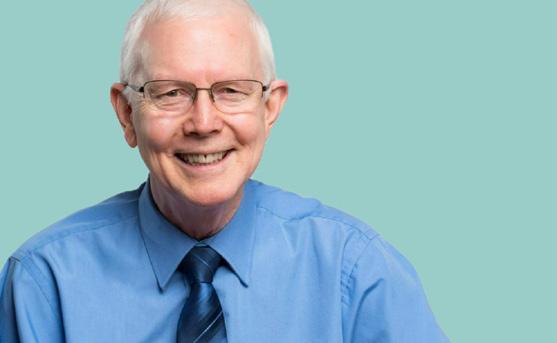
Also, those who do not have hearing loss, people like Dr. Sharpe himself, are using the app, too. Last spring, for example, he and his brother went to a restaurant in Tampa, Florida, that featured craft beer and televisions.
“It was the Stanley Cup hockey finals, which the city’s team, the Tampa Bay Lightning, were playing in,” he recalls. “As the storm of cheers, boos and shouting raged around us, we both used HeardThat, me with my earbuds and he with his hearing aids, and enjoyed a quiet, relaxing dinner during which we heard each other’s every word.”
Two talented young stars were selected to receive $30,000 awards through the 2022 AGE-WELL Emerging Entrepreneur Award. The award supports the development of emerging entrepreneurs to create and grow an innovative startup with potential social and economic impact in Canada. The Centre for Aging + Brain Health Innovation (CABHI) provided a cash top-up for both recipients. The award also provides mentorship and training.
We also announced the 2021 Emerging Entrepreneur Award recipients in the last fiscal:
As co-founder of Axtion Independence Mobility Inc., Liam Maaskant is developing a solution that expands the functionality of a rollator walker to include a motorized seat that moves us and down, giving older adults greater independence at home.
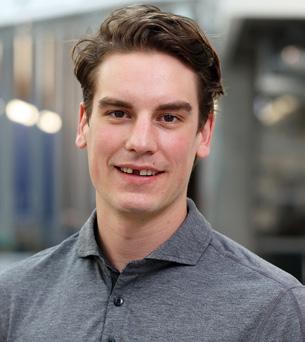
Emerging Entrepreneur
Anika Munn is a co-founder of LivingSafe, a startup developing a smart monitoring system designed to keep older adults safer by providing their caregivers with physical status data, such as vital signs, and alerts, for instance if a loved one wanders at night.
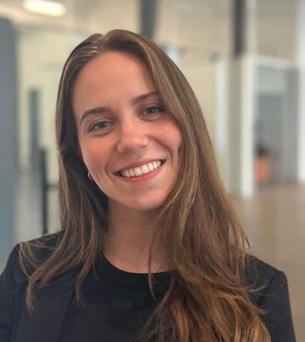
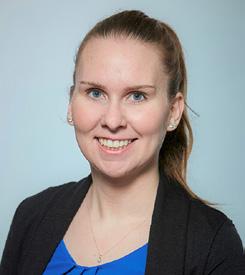
2021 Emerging Entrepreneur Award recipient
Dr. Patricia Hewston is an occupational therapist and postdoctoral fellow at the GERAS Centre for Aging Research, a Hamilton Health Sciences Centre affiliated with McMaster University. Dr. Hewston is scientific curriculum lead for GERAS DANcing for Cognition & Exercise (DANCE), an evidence-based dance program for older adults looking to improve their mind-body health.
2021 Emerging Entrepreneur Award recipient
Dr. Bryan Hong recently earned his PhD in cognitive neuroscience from the University of Toronto. He is one of the developers of HippoCamera, a validated, easy-to-use smartphone-based memory aid. HippoCamera allows users to create and play back personalized multimedia reminiscence cues for real-life events.
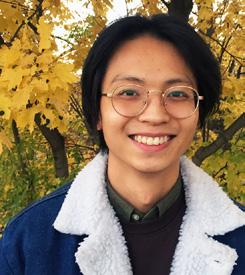
The Canadian College of Health Leaders and AGE-WELL teamed up to produce a special themed issue of the journal Healthcare Management Forum, published in September 2022, on aging, technology and health in a post-COVID world.
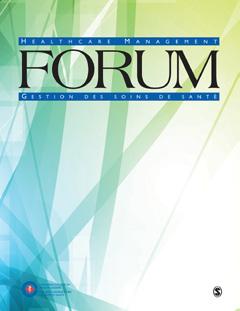
We continue to expand our engagement with government and to share our expertise widely. It is vital that Canada takes a forward-looking approach to policy and decision-making that includes technology as part of the solution to age-related challenges.
We work side-by-side with our national innovation hub in Fredericton, N.B., called Advancing Policies and Practices in Technology and Aging (APPTA), to meet regularly with provincial, territorial and federal government staff to determine their priorities and address their emerging policy and evidence needs.
Our efforts are paying off. In 2021, AGE-WELL was invited to co-host a technology event as part of the Federal/Provincial/Territorial Ministers Responsible for Seniors Forum stakeholder symposium. Following the event, technology to enhance aging in place was identified as one of the top priorities over the next three years for the Federal/Provincial/Territorial Ministers Responsible for Seniors’ agenda.
Through our scientific director and CEO Dr. Alex Mihailidis, we are shaping much-needed new national standards for long-term care. Dr. Mihailidis is leading the development for the CSA Group of a national standard for long-term care homes that will provide requirements for safe operating practices and for infection prevention and control in long-term care homes (see page 17).
AGE-WELL and its members advocate for older adults and caregivers, wherever they are. For example, a team led by AGE-WELL researcher Dr. Janet Fast of the University of Alberta is pushing for better supports for caregivers “as a social justice imperative” and informing policy initiatives in the care economy through its research, infographics and editorials, among other strategies.
In 2022, we produced an animated video showcasing AGE-WELL’s eight Challenge Areas that are moving the dial when it comes to supporting older adults and caregivers, and generating social and economic benefits.
Webinars, social media, op-eds and interviews with journalists are some of the other ways in which we share our knowledge and expertise. In 2021, AGE-WELL hosted a unique virtual event, AgeTech Innovation Week, which attracted over 1,200 attendees and more than 60 speakers from around the world for curated panel sessions, workshops and catalytic conversations.
We’re also pumping out books. AGE-WELL is collaborating with Morgan & Claypool Publishers on an AgeTech book series, focused on the eight AGE-WELL Challenge Areas that drive our research and innovation agenda and overall strategic direction. The second book in the series, titled Autonomy and Independence: Aging in an Era of Technology, was published in 2022 as a joint collaboration between AGE-WELL, the SFU Science and Technology for Aging Research (STAR) Institute and University of Waterloo.
AGE-WELL scientific director and CEO Dr. Alex Mihailidis spoke about “The Impact of COVID-19 on Seniors” before the House of Commons Standing Committee on Human Resources, Skills and Social Development and the Status of Persons with Disabilities (HUMA).
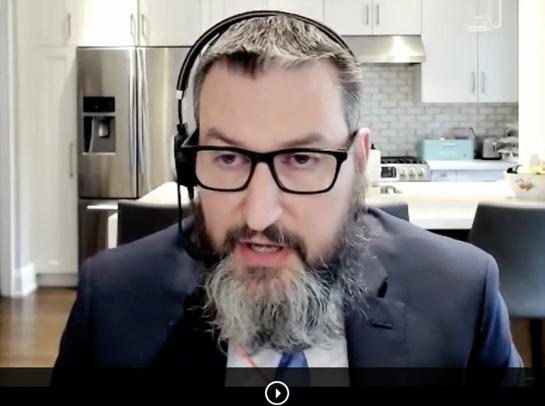
Being an AGE-WELL HQP changed my life and business trajectory in profound ways. Thank you!”
Dr. Andrea Wilkinson, CEO, BrainShape Inc. and founder, Brain Vitality MethodInvesting in people who will shape the future of aging is a hallmark of AGE-WELL. We call our unique training program EPIC (Early Professionals, Inspired Careers). Since its launch in 2015, EPIC has supported over 1,200 highly qualified personnel, or HQP, from 111 institutions across nine Canadian provinces, Australia, Belgium, Denmark, France, Mexico, the United Kingdom and the United States.
EPIC provides undergraduate students, graduate students, postdoctoral fellows, early career researchers and research and health professionals with the knowledge and skills to advance Canada’s leadership in AgeTech in academic and non-academic spheres.
Our program is as varied as our trainees. It consists of disciplinary and professional development webinars and lectures, summer institutes, pitch competitions, experiential training opportunities such as internships and exchanges, as well as access to funding and multi-sectoral mentorship. Equity, diversity, inclusion and co-creation are integrated throughout all aspects of program development and delivery.
As you will read on pages 34-37, our trainees are landing positions in industry, academia and community organizations. They are launching startups, and taking their skills into government. And they are having an impact. In short, AGE-WELL has developed a pipeline of highly trained, highly qualified individuals able to tackle real-world problems.
In 2022, we launched a new federally-funded national training platform which will equip graduate students, postdoctoral fellows and early career researchers to accelerate the delivery of digital health solutions for older Canadians with complex health needs, and their caregivers.
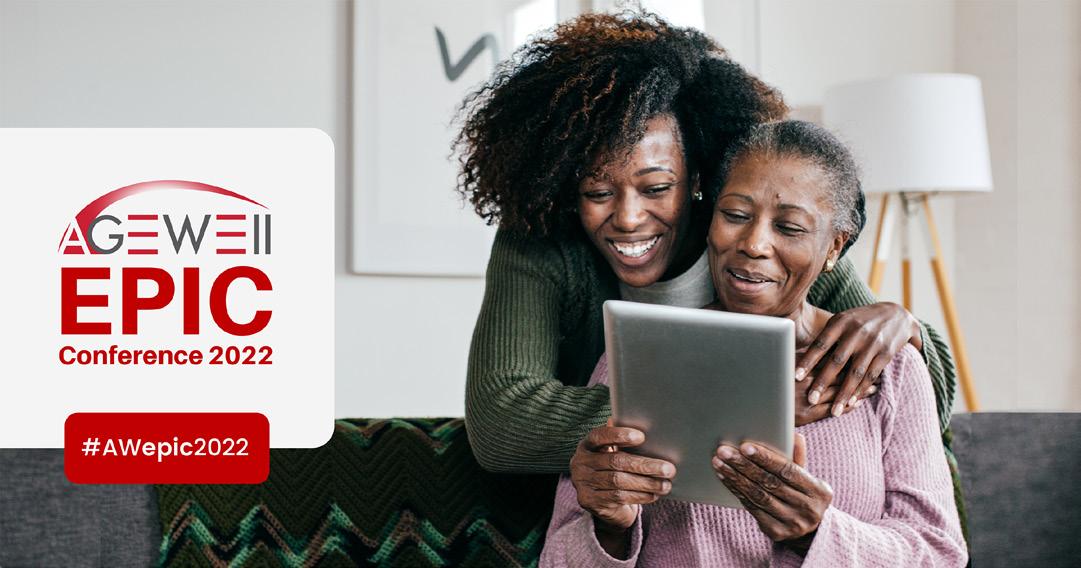
The Early Professionals, Inspired Careers in AgeTech (EPIC-AT) Health Research Training Platform is powered by AGE-WELL and led by researchers from 11 universities and research hospitals across six Canadian provinces.
EPIC-AT is hosted at the University of Toronto. The Canadian Institutes of Health (CIHR) is funding EPIC-AT at $2.5 million over six years. We also have over $6.5 million in cash and in-kind commitments from our partners.
The competency-based experiential learning platform is an extension of AGE-WELL’s globally-leading EPIC training program and is funded to provide one-year fellowships to graduate students, postdoctoral fellows and early career professionals at Canadian institutions from 2022-2027.
Participants will be equipped to develop, implement and evaluate digital technology solutions across areas such as information and communication technologies (ICT), telemedicine, artificial intelligence, sensors, smart environments and wearables.
Our EPIC Conference has grown to be the largest virtual trainee conference at the intersection of health, aging and technology, and it consistently garners a truly global audience. We hosted our third conference from May 30 to June 10, 2022. A total of 778 attendees from 19 countries were treated to 16 conference sessions over 10 days. The content, available on our YouTube channel, continues to be frequently viewed across the world.
2022 Michael F. Harcourt Policy Fellowship recipient
Karen Lok Yi Wong, PhD student, University of British Columbia
Project: Healthcare and Social Service Navigation involving Information and Communication Technology (ICT) of Older Adults and Family Caregivers
2021 Michael F. Harcourt Policy Fellowship recipient
Amélie Gauthier-Beaupré, PhD candidate, University of Ottawa
Project: Conceptual Framework for Policymaking for Older Adults’ Self-Management of Disabilities with Information and Communication Technologies
2021 Indigenous Graduate Student Award recipient
Violet Ignace, Master’s student, University of British Columbia
Project: Digital Storytelling with Elders and Knowledge Keepers
The 2022 EPIC-AT Indigenous Graduate Student Award recipients will be announced soon.

Adebusola Adekoya, a registered nurse and PhD candidate at the University of Waterloo, received a three-year doctoral award funded by AGE-WELL in collaboration with the Alzheimer Society Research Program (ASRP). Adekoya’s current research focuses on older adults living with dementia at risk of getting lost and going missing, and the use of innovative strategies to promote safe walking.
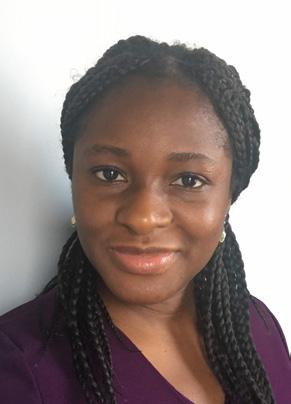
As a newly-minted assistant professor at the University of Calgary, Dr. Sayeh Bayat is already encouraging her students to become AGE-WELL trainees – an experience she calls “incredible” in her own advancement as a researcher in technology and aging.
“It’s one of the first things I tell my students when they are starting in this field: join AGE-WELL’s EPIC (Early Professionals, Inspired Careers) training program,” says Dr. Bayat.
“AGE-WELL really helped me with transdisciplinary research, how to connect with older adults and stakeholders to learn about their experiences, and get connected with researchers and other trainees who have similar interests.”
Dr. Bayat also received an AGE-WELL/University of Toronto Faculty of Applied Science and Engineering Graduate Student Award.
During her time with AGE-WELL, Dr. Bayat’s grandmother was diagnosed with Alzheimer’s disease. “I could see first-hand the changes in her life and the challenges she was facing.”
This further motivated Dr. Bayat’s postgraduate research in biomedical engineering at the University of Toronto (U of T), with AGE-WELL scientific director Dr. Alex Mihailidis as her advisor. Her studies probing the relationship between older adults and their environment have led to published papers and attracted coverage by the BBC and The New York Times.
For her PhD thesis, Dr. Bayat delved into the question of whether GPS mobility can be used to explain, influence or even predict dementia. Her study used mobile GPS tracking with older adults – some with dementia (accompanied by family caregivers) and a comparison group of older adults with no cognitive issues – as they moved about the community by car, transit, bicycle or walking.
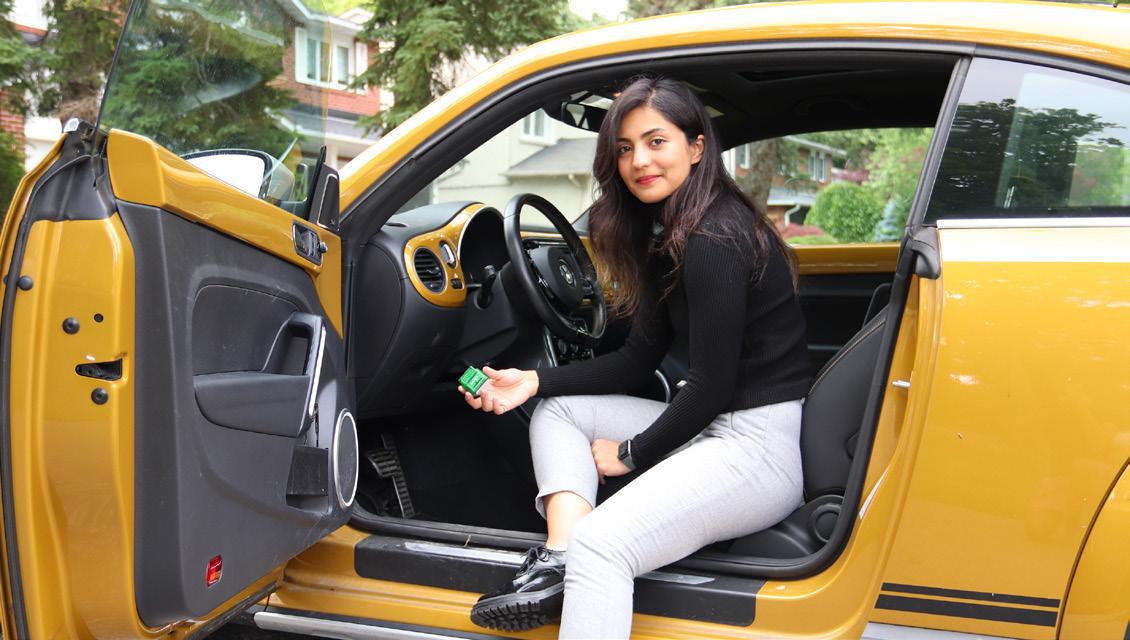
The findings showed that those with dementia moved about the community less, were less likely to go to new places or participate in sporting events, and were more likely to participate in medical activities than the control group. These findings could have implications for transportation policies and services, and inform community dementia strategies.
It was while presenting her study at an international research conference that Dr. Bayat met a team from Washington University at St. Louis that she and her AGE-WELL/U of T colleagues would collaborate with on her second doctoral study.
The researchers wanted to find out if driving habits alone could identify whether or not older adults had preclinical Alzheimer’s disease, an early stage of the disease where no symptoms are evident. Dr. Bayat and the team designed a model that could predict with 86 per cent accuracy if an older person in the study had preclinical Alzheimer’s disease based solely on their age and driving data gathered by a GPS tracker in their car, and without the use of invasive or expensive medical procedures.
“The machine learning algorithms were able to identify subtle patterns in driving that were associated with earlier signs of Alzheimer’s disease,” explains Dr. Bayat, who continues to explore this fertile field of research with the Washington University team. For example, those with early signs of Alzheimer’s were more likely to drive slower, make sudden changes, travel less at night, and drive shorter distances to fewer destinations using more confined routes, among other patterns observed.
In fall 2021, Dr. Bayat took up her new position at the University of Calgary in the Department of Biomedical Engineering, with a secondary appointment in the Geomatics Engineering Department. She is also a member of the Hotchkiss Brain Institute in the Cumming School of Medicine, and director of the Healthy City Laboratory.
Dr. Bayat believes that the relationship between older adults and their environments “holds significant information about people’s health and well-being.” Currently, she is working on digital biomarkers that would allow for earlier identification of Alzheimer’s disease.
While pursuing her academic and research career in Calgary, Dr. Bayat intends to stay involved in AGE-WELL, with a special interest in early-career researchers.
“I just want to thank everyone at AGE-WELL for all they do because they have been incredible for me, for my advancement both through graduate school and now as an early-career researcher. It’s great to have that network to rely on – they’re a really good support system.
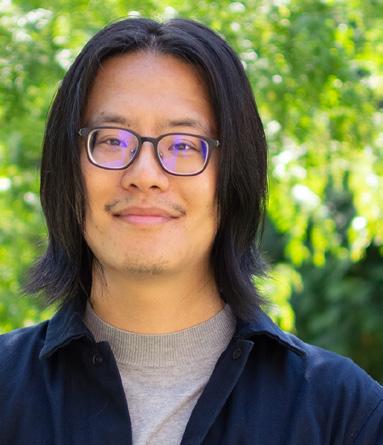
Lawrence Ly’s passion for supporting healthy aging has deep roots. As a 15-year-old, his beloved paternal grandmother was moved from his family’s home to a long-term care facility. For three years through high school, he spent time with her and other residents as a volunteer. The experience had a profound impact on him, sowing the seeds for a career devoted to improving the lives of older Canadians.
Born and raised in Edmonton, Ly had a keen interest in long-term care issues. “I followed the news about it because it had such a large bearing on my life and how I went about living it,” he says. “I had spent so much time in that setting and I wanted to understand what was happening.”
It seemed clear that he would be heading into a career in the field of aging and health. Ly admits that it was difficult to figure out how he and his skills fit into it. “Most people in that field have more of a scientific bent, so people were studying to be doctors or nurses, and positions like that,” he explains. “I didn’t like the sciences. My brain is not wired that way, so I was unsure about how to become part of the healthy aging movement.”
Seven years after he attended the University of Alberta, Ly decided to move to Toronto to pursue a master’s degree in Design for Health at OCAD University. It gave him a chance to apply his creative talents. “I used the program to also pursue research about healthy aging and older adults,” he recalls. “What were the practices? What were others doing in the space? I realized my journey into the healthy aging sector would be through design and an understanding of specific aging challenges.”
Those years at OCAD were invaluable in so many ways for Ly. During that time, he first became acquainted with AGE-WELL, Canada’s technology and aging network, as
the recipient of a scholarship in 2018 – an award created to support and prepare the innovators of tomorrow through training and mentorship opportunities.
While completing his education, Ly joined the organization as a knowledge mobilization research assistant, translating relevant findings into infographics and other products for print, website and social media.
“AGE-WELL was a unique opportunity to see science, research and creativity come together all in one place,” he says. “They take a very user-focused approach to healthy aging through a very human lens.”
At the same time, Ly was working on a capstone research project – a card game to communicate the concept of aging in place and to build participants’ empathy and understanding about the challenges of aging. His idea earned him a top 10 spot at the Ownr Career Launcher for Creative Entrepreneurs pitch competition. He has hopes to move his game forward as an educational and training tool for organizations, older adults, caregivers and their families.
In 2020, Ly landed a contract with CanAge, a national seniors’ advocacy organization, where he continued his efforts to improve the lives of older Canadians by designing policy roadmaps, sharing information and research, and supporting outreach to the healthy aging community. Today, he’s a designer at Healthcare Human Factors, working with a team dedicated to designing better – and more human – health care experiences for everyone. One of his next projects focuses specifically on older adults.
No matter what projects are keeping Ly busy, thoughts of his grandmother are never far away. “Everything I do is a way to keep the love I have for her alive,” he says.
“Through my work, my volunteering… These are the ways that I honour her legacy. I am also thinking of my parents, too, as they age, and how I can support them through my design and research work. Everyone should be able to age in their own way and have the support they need to help them.”
When Dr. Sofija Spasojevic chose to pursue postdoctoral studies in Canada, she fully anticipated returning to Europe at the end. After three years, she not only decided to stay but discovered a passion for data science that prompted her to leave academia for a career in this field.
“Typically there are two routes you take as a postdoctoral fellow, either continue on as a professor or switch to industry,” says Dr. Spasojevic, an alumna of AGE-WELL’s EPIC (Early Professionals, Inspired Careers) training program who landed a position as a data scientist with Roche Canada in 2021.
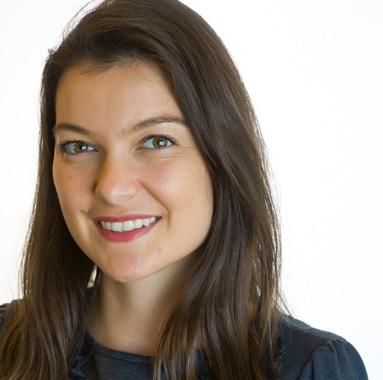
“I was so inspired by what I was seeing in my clinical data analysis work, that I decided to find a job where I could apply those skills to truly make a difference in people’s lives,” she says.
Dr. Spasojevic’s core specialty is signal processing, a skill she developed as an undergraduate and Master’s student in electrical engineering at the University of Belgrade in Serbia. Her interest in data science was sparked during her PhD studies – a bilateral program between the University of Belgrade and Instituto Superior Técnico in Lisbon, Portugal, where she used real-world data collected from sensors worn by patients to develop decision-making systems to support the diagnosis and monitoring of neurological disorders like Parkinson’s disease or stroke. That work led her to Canada where, as a postdoctoral fellow at the University Health Network in Toronto, she joined a KITE Research Institute team working to create an early-warning system to detect agitation in people with dementia. A group of 20 study participants were provided with wristwatches equipped with wearable sensors to monitor heart rate, body temperature, dermal activity and motion. The idea: to build a machine-learning model capable of predicting when an episode of agitation was likely to occur based on changes in those parameters.
A key turning point came six months into her program when Dr. Spasojevic’s supervisor mentioned AGE-WELL’s
EPIC training program and encouraged her to apply. Dr. Spasojevic was accepted and over the course of the next two-and-a-half years, elevated her research skills to a new level.
“The exposure and networking opportunities presented through AGE-WELL had a direct impact on my approach,” said Dr. Spasojevic, who had the opportunity to co-create technology solutions with older adults and caregivers while attending the AGE-WELL Summer Institute in Gatineau, Quebec.
“It really opened my eyes to see why two-way communication between developers and end-users is so important,” she says. “If you close engineers in a room, they will come up with what they think is an ideal solution but, without direct feedback from users, they can’t possibly have full insight into potential roadblocks.”
Dr. Spasojevic attended numerous AGE-WELL events, webinars and online courses, and presented her research results at an annual conference. When she decided to pursue a career in industry, her involvement as an AGE-WELL trainee was a noticeable advantage, she says.
“My training is part of the reason I was such a good fit,” says Dr. Spasojevic, noting that Roche Canada was particularly impressed with her connection to stakeholders and users through the AGE-WELL network.
At Roche Canada, Dr. Spasojevic is part of the Artificial Intelligence (AI) and Digital Health team, working to develop data-driven solutions to help patients, including older adults, in terms of diagnosis, monitoring and treatments. In many ways, her studies have brought her full circle, she says, and she welcomes the opportunity to mentor other AGE-WELL trainees who may also be considering a career in industry.
“As a researcher, I collected signals from sensors and built my own data sets,” says Dr. Spasojevic. “Now, in my professional life, data sets are already available to me and my focus is on data analysis and providing valuable insights from data. I’ve closed the loop.”
All with the goal, she adds, of making a positive difference in people’s lives.
We were thrilled to gather in person again for the AGE-WELL Summer Institute, held in June 2022 in Prince George, B.C. The week-long event brought together two dozen undergraduate students, graduate students and postdoctoral fellows from across Canada.
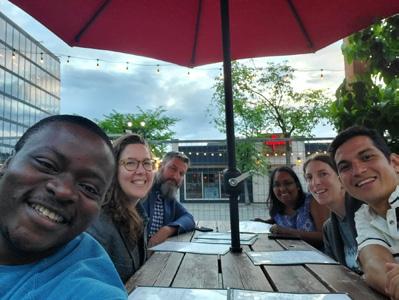
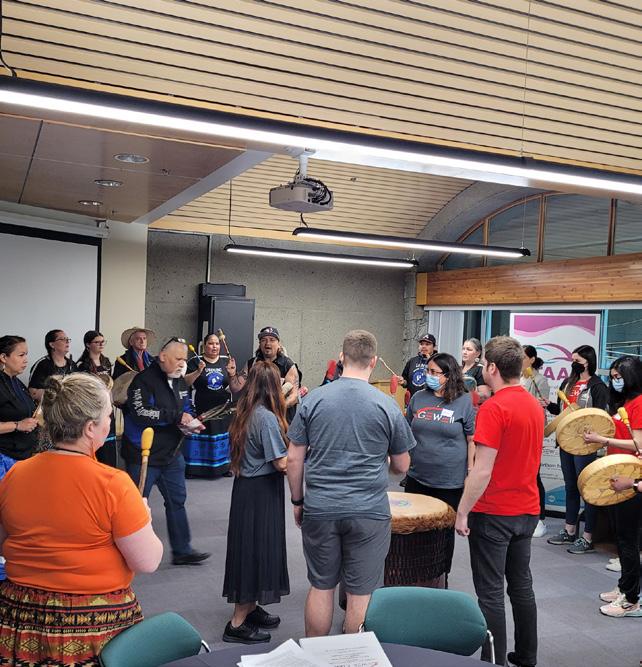
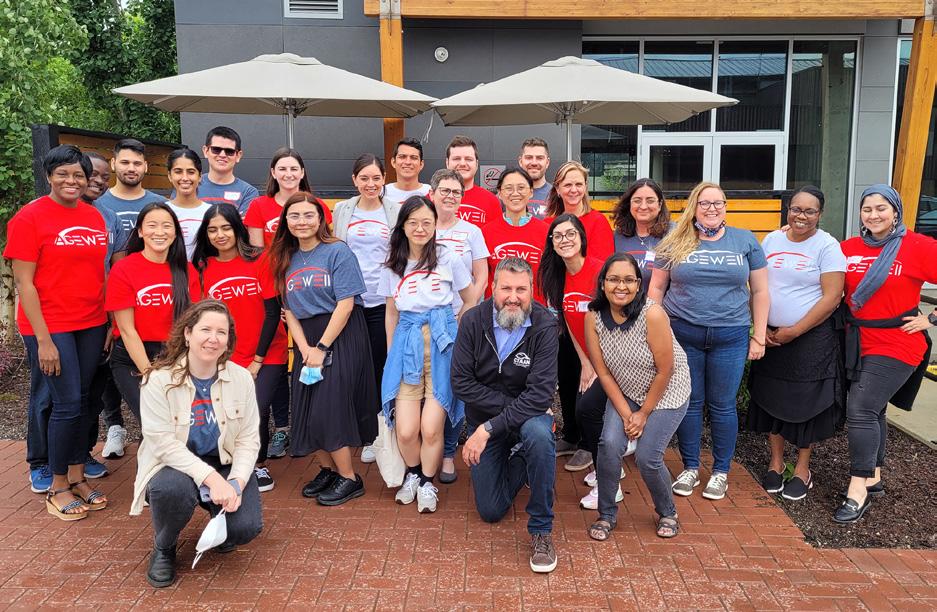
The theme of the intensive problem-based, experiential learning program was health care and health services delivery. Canada’s health care system is complex, and older adults and caregivers often face challenges such as getting to doctor’s appointments, obtaining health records and navigating the system. These challenges are compounded when faced in a remote or rural setting.
Trainees taking part in the Summer Institute worked directly with Northern Health stakeholders to co-create technology-based solutions designed to empower older adults to play an active role in their own health management and provide caregivers with peace of mind.
The event was co-hosted by the Centre for Technology Adoption for Aging in the North (CTAAN).
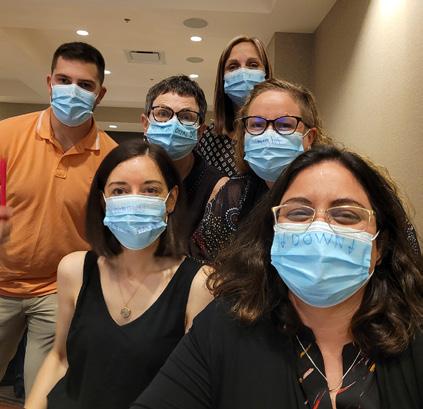
Team Praxio won the pitch competition for designing an app to help long-term care staff with strategies to better manage residents’ responsive behaviours. Pictured here, from left to right: Yashoda Sharma, John Munoz, Adebusola Adekoya, Hui Jun Chew, Aline Aboujaoudé and Annabel Fan.
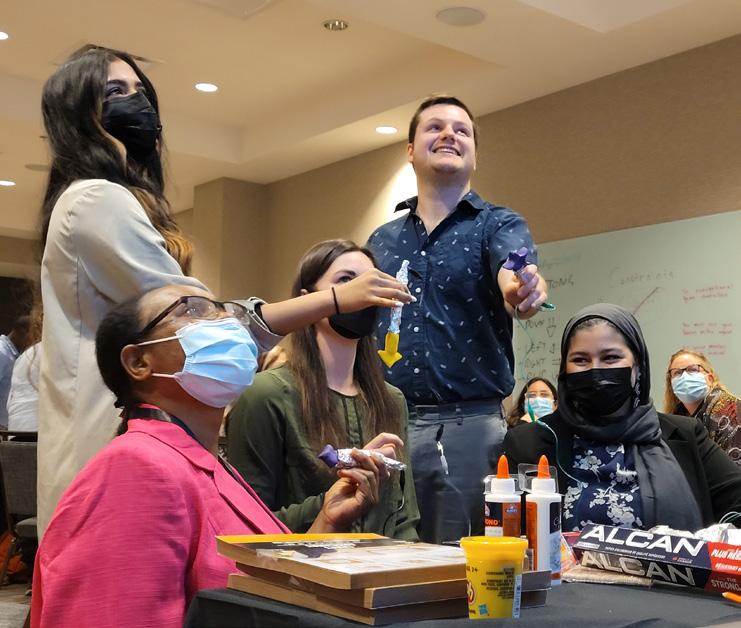
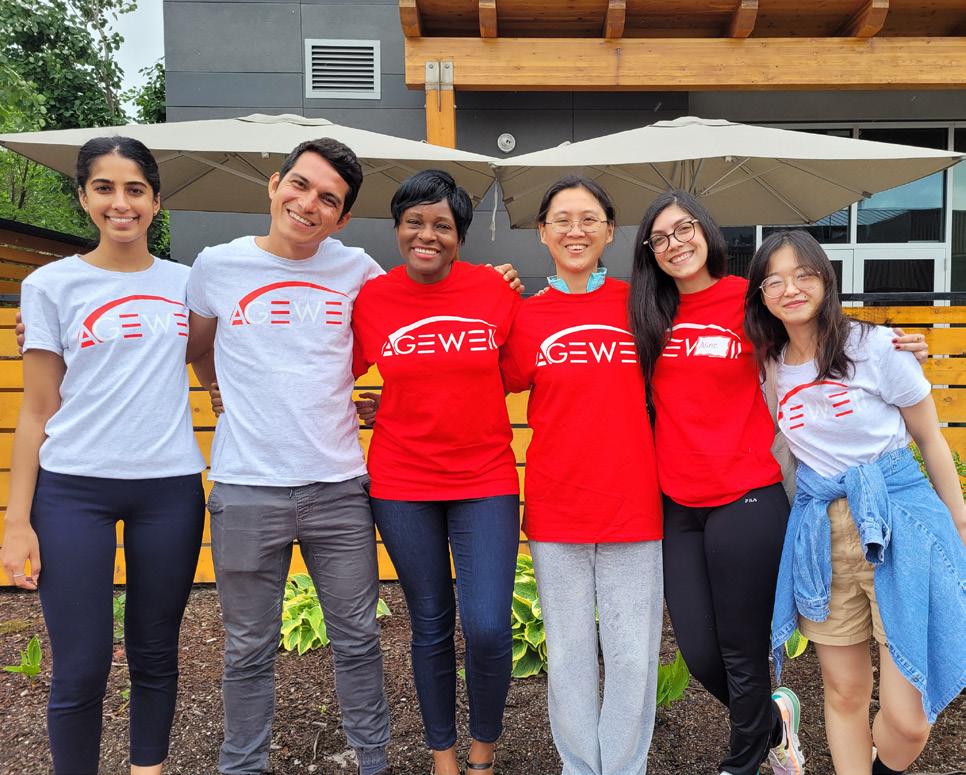
Trainees worked in multidisciplinary teams to develop solutions and prepare their pitch presentations.
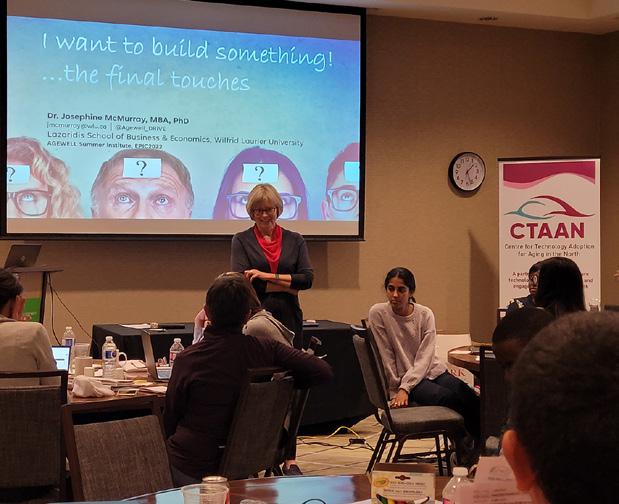
As our network has matured, our partnerships have expanded in all directions.
AGE-WELL now counts more than 425 partners across sectors, and a further 60+ startups. From robotics and insurance companies to the senior living sector, we continue to diversify our partnerships portfolio and to attract high-profile partners like TELUS and Green Shield Canada.
We have deepened our engagement with industry partners as we work together to propel Canada’s AgeTech sector forward. Best Buy Health and Rakuten Kobo, for example, are working with AGE-WELL network members and two of our national innovation hubs, as well as evaluating and building partnerships with our startup affiliates.
Our partners have also become strongly involved in AGE-WELL’s Industry Advisory Group, which in 2021 released a white paper on Technology and Aging at Home: The Future of Aging in Place.
Despite the pandemic, we continue to see partner contributions and sponsorship for network activities, such as the AGE-WELL National Impact Challenge. This support has helped us raise the profile of AgeTech research and the broader longevity sector during the past year.
We’ve also teamed up with Startup Canada to increase the profile of entrepreneurship and startup-related programming. And we’re excited to see that Sun Life’s Lumino Health is listing more and more AGE-WELL products in its Discovery Lab repository.
Our own listing of AGE-WELL products – the AGE-WELL Solutions Catalogue – is often requested by our partners. In the last year, this led to implementation projects involving network products in long-term care homes, and other opportunities to get technologies adopted.
AGE-WELL has established itself as a global leader in technological innovation that supports older adults to age well in their communities of choice. We are proud to partner with AGE-WELL in moving research and evidence to impact and uptake, with proven results.”
Laura Tamblyn Watts, President & CEO, CanAge
In everything we do, older adults and caregivers are central. This is the only way to ensure uptake and impact. Eleven older adults and caregivers sit on our Older Adult and Caregiver Advisory Committee, Research Management Committee and International Scientific Advisory Committee as active participants and champions of AGE-WELL.
Older adults and caregivers also take part in insight panels evaluating products, research relevancy reviews, webinars and myriad other activities. With a long-standing commitment to meaningfully engage end-users in all aspects of AGE-WELL, the network implemented a compensation guideline in spring 2021 to formally attach value to the time and expertise provided by older adults and caregivers. The new guideline systemizes the process for compensation and was co-developed with older adults and caregivers.
AGE-WELL also began hosting Connections: Conversations with Older Adults and Caregivers. These online monthly get-togethers provide opportunities for older adults and caregivers to have informal conversations about topics related to aging, and to have their voices heard. Over a dozen sessions have taken place since July 2021.
The AGE-WELL Honorary Fellow Award recognizes members who have made long-term and substantial contributions to research and innovation in the AgeTech sector, as well as a significant contribution to AGE-WELL. Our sincere gratitude to the most recent recipients:
Roger Marple was a powerful advocate for people living with dementia. He served on AGE-WELL’s Older Adult and Caregiver Advisory Committee as member-at-large, Alberta, collaborated on AGE-WELL research projects and supported future leaders in AgeTech. Since his diagnosis with dementia in 2015, he made it his mission to dispel myths about the disease and the stigma associated with it. Marple was on the board of directors of the Alzheimer Society of Alberta and Northwest Territories, and also served on an Alzheimer Society of Canada advisory group. We were deeply saddened by his death in October 2022.
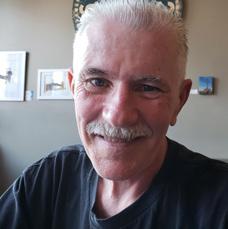
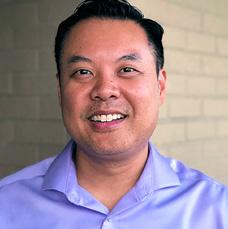
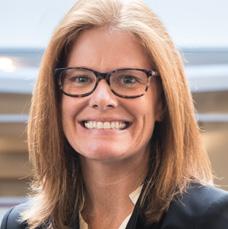

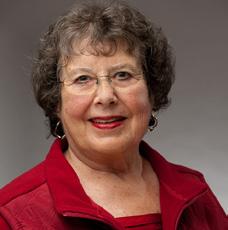
2021 AGE-WELL Honorary Fellow Award
Dr. Sandra McKay is Vice President of Research & Innovation at VHA Home HealthCare, and an assistant professor at the Institute of Health Policy Management & Evaluation at the University of Toronto. Dr. McKay has contributed to AGE-WELL in countless ways, serving on the Research Management Committee and the Industry Advisory Group. Her dedication to and efforts within the AGE-WELL network have been of great benefit to researchers, startups, trainees and AGE-WELL itself.
The work that AGE-WELL is doing is amazing. I love being part of the process and I’m so proud to be involved.”Chaitali Desai, Ontario Region Representative, AGE-WELL Older Adult and Caregiver Advisory Committee Ron Beleno, co-chair Sherry Baker, co-chair Caron Leid, vice-chair
AGE-WELL has become a major player on the global stage. We continue to build international partnerships that help us advance on our vision that Canada’s leadership in technology and aging benefits the world.
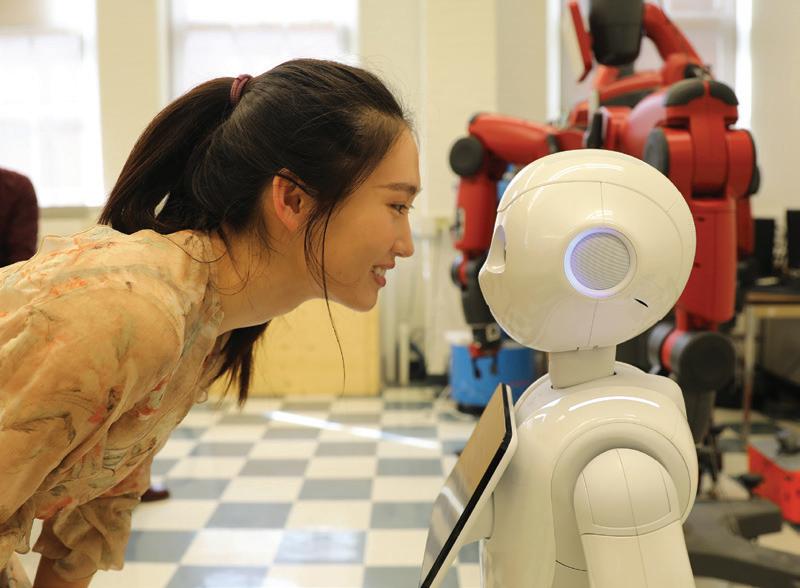
We were excited to join forces in 2022 with Challenge Works in the UK to support the new $6.4 million Longitude Prize on Dementia, which will reward innovators developing assistive technologies for people living with dementia. Supported by AGE-WELL in Canada, the prize is funded by the UK’s Alzheimer’s Society and Innovate UK, and delivered by challenge prize experts, Challenge Works.
Our partnership with the Academic Health Science Network (AHSN) in the UK is spurring the development of a bilateral exchange to send innovators to and from the UK in partnership with the AHSNs, the Northern Health Science Alliance (NHSA), and UK Research and Innovation.
AGE-WELL members share their expertise far and wide.
AGE-WELL’s scientific director and CEO Dr. Alex Mihailidis is vice president of the Active and Assisted Living Association. The Brussels-based association manages the AAL Programme, which is a global pioneer in the technology and aging sector. Drs. Marla Beauchamp, Parminder Raina and Ayse Kuspinar
are leading a working group on mobility measurement and metrics for the United Nations Decade of Healthy Ageing. These are just some among many examples.
Excitingly, in September 2022, Dr. Mihailidis was recognized as one of the Healthy Ageing 50 – 50 leaders working to transform the world to be a better place to grow older. The Healthy Ageing 50 is an initiative under the banner of the UN Decade of Healthy Ageing that honours 50 leaders who are working to foster healthy aging.
AGE-WELL was proud to represent Canada in 2021 on the Global Health Connector Partnership Task group on health disparities. The Global Health Connector Partnership is a consortium of international organizations brought together by the European Connected Health Alliance (ECHAlliance).
Our international leadership was also on display when we hosted AgeTech Innovation Week in 2021. This first-ever virtual event featured national and international leaders in AgeTech and attracted over 1,200 attendees from around the world.
AGE-WELL researchers and startup affiliates are collaborating on AgeTech projects with teams in countless countries. For instance, Winterlight Labs is working with a group at Amstersdam UMC – Alzheimer Center Amsterdam to develop a remote monitoring toolbox for the assessment of patients with preclinical Alzheimer’s disease. Dr. Goldie Nejat is part of a new international collaboration with Tel Aviv University exploring the use of innovative health technologies, including socially assistive robots, that can be adopted by long-term care homes.
Increasingly, AGE-WELL-supported products are selling in countries around the world. Blind-spot sensors for wheelchairs, created by AGE-WELL startup Braze Mobility Inc., are now being used by people in Canada, the US, Germany, Australia, New Zealand and Hong Kong. Seniors’ homes in Australia are installing the Sleepsense bed alarm and sleep tracker, made by Tochtech Technologies, an AGE-WELL startup affiliate. And the list goes on.
More than ever, technology-based solutions are needed to empower Canadians to age safely wherever they choose, and to transform care and support across all settings. The timeline for implementing such solutions has moved up dramatically because of COVID-19. As a unique Canadian network that supports innovation in technology and aging across the spectrum, AGE-WELL is ideally positioned to drive Canada’s growing AgeTech sector, bringing benefits for older adults, caregivers and for our economy. The AGE-WELL community of national and international partners and institutions, future leaders, innovation hubs and broad-based advisory groups is critical to our shared vision: creating the future of aging in Canada.
AGE-WELL will continue to be the home for researchers, partners and trainees in the AgeTech field, with a strong focus on moving ideas and innovations towards implementation – and ensuring that they are inclusive, effective and adopted. Our planning for the future involves building on everything the AGE-WELL community has started, including outstanding research, world-leading training, startup support, rapid development and implementation. Our role as convenor in the AgeTech space is widely recognized and valued. We will pursue it with continued passion and vigour. In the words of Dr. Joseph Coughlin, author of The Longevity Economy: “AGE-WELL [is] a brilliant shining light in Canada and throughout the world.”
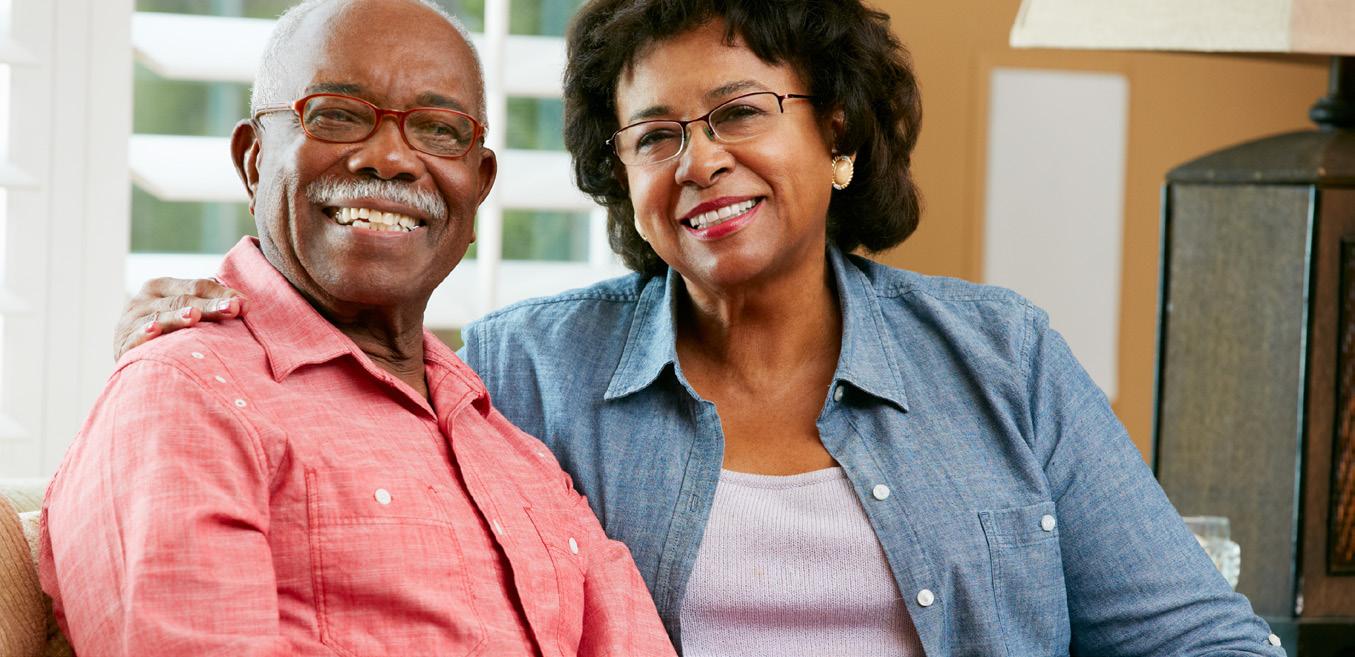
Aging in place is about being able to live independently in one’s own home and community through appropriate supports and services.
Example technologies: smart homes, sensors to monitor safety at home, online portals for community groups and programs
Older people try to maintain their autonomy and independence, even in the face of impairment, disability or illness.
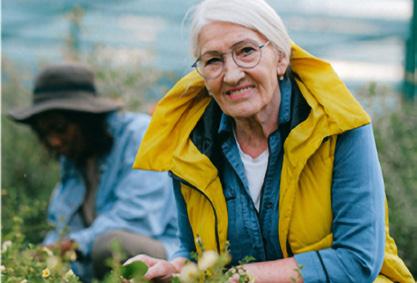
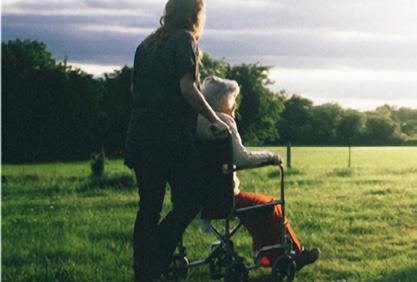
Example technologies: assistive technology, stick-on hip protectors, rehabilitation technologies, stabilizing glove
Older adults look for inclusive transportation systems that make them feel comfortable, respected and safe. Increased mobility and confidence allow for more equitable access to environments.
Example technologies: smart wheelchairs, autonomous vehicles
Older adults and caregivers face challenges like getting to doctor’s appointments, obtaining health records, navigating the system and affording new technologies that improve quality of care.
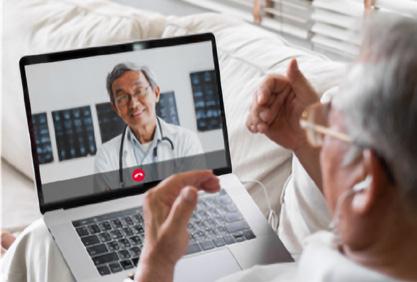
Example technologies: virtual doctor visits, digital health apps, continuous glucose monitors, bed transfer platform

Cognitive health issues impact older adults and caregivers, but there are proactive approaches to managing them.
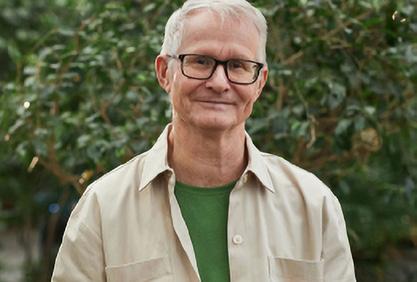
Example technologies: medication reminders, digital cognitive assessment tools
Many older Canadians experience financial vulnerability and workplace exclusion as they age.
Example technologies: employment portals tailored for older users and caregivers, financial apps
Staying connected is about strengthening the social networks of older adults and caregivers.

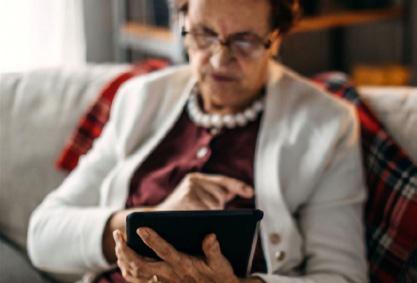
Example technologies: social platforms and apps, social and telepresence robots, hearing aids
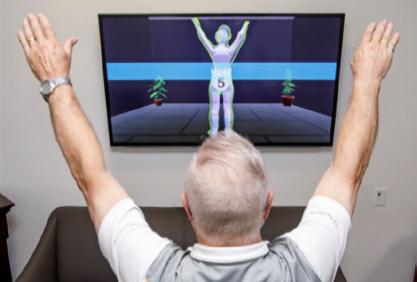
A healthy lifestyle is not just about making conscious choices about nutrition, exercise and self-management of mental and physical health. It is also about the social, economic and contextual factors.
Example technologies: wearables, virtual access to exercise, fitness apps
A Challenge Area is an important but difficult and complex problem area that demands innovative, real-world solutions.

Mimi Lowi-Young, Chair, Board of Directors Barbara Stymiest, Chair, F&A
Please refer to the audited financial statements on the AGE-WELL NCE website: www.agewell-nce.ca

AGE-WELL NCE Inc.
Year ended March 31
REVENUE
Networks of Centres of Excellence grant
Grant from other partners/organizations
Other sources of funds
EXPENSES
Research and training
Communications
Networking meetings and events
Professional fees
Travel Administration
Excess of revenue over expenses for the year
Unrestricted net assets, beginning of year
Unrestricted net assets, end of year
Cash and in-kind contributions from partners held and spent at network member institutions are not included in these statements.
The Network follows the deferral method of accounting for contributions, which include government and other grants. Deferred contributions represent unspent resources externally restricted for program expenses in future years. Changes in the deferred contributions balance are as follows:
Balance, beginning of year
Amounts received during the year – NCE
Amounts received during the year – NCE COVID Supplement
Amounts received during the year – Non NCE
Amounts recognized as revenue during the year – NCE
Amounts recognized as revenue during the year – NCE COVID Supplement
Amounts recognized as revenue during the year – Non NCE Balance, end of year
Please refer to the audited financial statements on the AGE-WELL NCE website: www.agewell-nce.ca
as of October 2022
Baycrest Centre for Geriatric Care
Bruyère Research Institute
Carleton University
Centre de recherche de l’Institut universitaire de gériatrie de Montréal (CRIUGM)
Children’s Hospital of Eastern Ontario Research Institute
Collège Mérici
Dalhousie University
First Nations University of Canada
George Brown College
Health Sciences North Research Institute
Laurentian University
London Health Sciences Centre
Memorial University
McGill University
McMaster University
Montreal Heart Institute
Ontario Shores Centre for Mental Health Sciences
Ontario Tech University
Simon Fraser University
St. Thomas University
Sunnybrook Research Institute
TÉLUQ
The Research Institute of the McGill University Health Centre
Toronto Metropolitan University
Trent University
Trillium Health Partners
Université de Montréal
Université de Sherbrooke
Université du Québec à Montréal
University Health Network
Université Laval
University of Alberta
University of British Columbia
University of Calgary
University of Guelph
University of Manitoba
University of New Brunswick
University of Northern British Columbia
University of Ottawa
University of Regina
University of Saskatchewan
University of Toronto
University of Victoria
University of Waterloo
Western University
Wilfrid Laurier University
6Harmonics
AbbVie
Access Community Therapists Limited
Active and Assisted Living Programme (AAL)
Active4Care
Aditum Health
ADL Smartcare
AdvantAge Ontario
Aerial Technologies Inc.
Age Care Technologies Ltd
Aging 2.0
Aix-Marseille University
Alberta Association on Gerontology
Alberta Health Continuing Care
Alberta Health Services
Alberta Innovates
Alberta Seniors and Housing
Alberta Therapeutic Recreation Association
Algonquin College
AllerGen NCE
Alzheimer Society of British Columbia
Alzheimer Society of Calgary
Alzheimer Society of Canada
Alzheimer Society of Durham Region
Alzheimer Society of Manitoba
Alzheimer Society of Ontario
Alzheimer Society of Saskatchewan
Ambient Activity Technologies
Amylior Inc.
Annapolis Valley Health
Ashbourne
Art4Life Inc.
Association for Computing Machinery
Association pour l’intégration sociale
d’Ottawa (AISO)
Autonomous_ID
Barrie and Community Family Health Team
Baxter Corporation
Baycrest Centre for Learning Research and Innovation
Baycrest Health Sciences
Bayshore Healthcare
BC Care Providers Association
BC Ministry of Health
BC Hydro
BC Seniors Living Association
BC Silver Alert
BC Support Unit
BC Therapeutic Recreation Association
Behavioural Supports Ontario
Beiersdorf AG
Bell Canada
Bereskin & Parr LLP
Best Buy Canada
Bigmotion Technologies Inc.
BioCanRx NCE
Blackberry
Blue Tree Medical Inc.
BOA Technology
Bosch Engineering GmbH
Boston Scientific Canada
Bowmont Seniors Assistance Association
Brampton Venture Zone
Breton Ability Centre
British Columbia Academic Health Sciences Network
Bruyère Research Institute
Burnaby Multicultural Society
Burnaby North Secondary School
Cambridge Brain Sciences
Canadian Agency for Drugs and Technologies in Health (CADTH)
Canadian Assistive Devices Association (CADA)
Canadian Association of Occupational Therapists (CAOT)
Canadian Association on Gerontology
Canadian Centre for Elder Law
Canadian Consortium on Neurodegeneration in Aging (CCNA)
Canadian Fall Prevention Curriculum
Canadian Frailty Network NCE
Canadian Homecare Association
Canadian Mental Health Association
Middlesex
Canadian Mountain Network NCE
Canadian Red Cross
Canadian Respiratory Research Network
Canadian Sleep and Circadian Network
Canadian Standards Association (CSA)
CanAge
CanAssist
CapitalCare
Cardiac Arrhythmia Network of Canada
- CANet
CareBand Inc.
Caregiver Omnimedia Inc.
Caregivers Alberta
Carers Canada
CARF Canada
Cariboo Friendship Society
CARP
Carya Society of Calgary
CBDS Health Inc.
CBI Health Group Inc.
Cedarhurst Dementia Care Home
Centre de réadaptation LucieBruneau Centre de réadaptation Constance-Lethbridge
Centre de recherche interdisciplinaire en réadaptation du Montréal métropolitain (CRIR)
Centre de recherche de l’institut universitaire de gériatrie de Montréal (CRIUGM)
Centre de recherche sur le vieillissement (CdRV)
Centre de santé et de services sociaux de la Montagne (CSS-DLM)
Centre de santé et de services sociaux de la Montagne (CSSS-DE) de l’Énergie
Centre facilitant la recherche et l’innovation dans les organisations (CEFRIO)
Centre for Aging + Brain Health Innovation (CABHI)
Centre for Assistive Technology and Connected Healthcare, University of Sheffield
Centre for Digital Media
Centre for Education and Research on Aging & Health, Lakehead University
Centre for Hip Health and Mobility
Centre for International Research on Care, Labour and Equalities (CIRCLE)
Centre for Research on Educational and Community Services (CRECS)
Centre for Social Enterprise Development
Centre intégré de santé et de services sociaux de Laval (CISSS-Laval)
Centre intégré universitaire de santé et de services sociaux de la Capitale-Nationale, CIRRIS and IRDPQ (CIUSSS-CN)
Centre intégré universitaire de santé et de services sociaux du Centre Ouest de-l’Île-de-Montréal, CRCL (CIUSSS-CO)
Centre intégré universitaire de santé et de services sociaux du Centre-Sud de-l’Île-de-Montréal (CIUSSS-CS CRLB)
Centre intégré universitaire de santé et de services sociaux du Centre-Sud de-l’Île-de-Montréal (CIUSSS-CS IRGLM)
Centre intégré universitaire de santé et de services sociaux du Centre-Sud de-l’Île-de-Montréal (CIUSSSCS-IURDPM)
Centre interdisciplinaire de recherche en réadaptation et intégration sociale (CIRRIS)
Centre of Excellence on Partnership with Patients and the Public
Centre on Aging, University of Manitoba
Centre Universitaire Jean-FranÇois
Champlain Community Care Access Centre
Chartwell Retirement Residences
Choices in Community Living
Choro
Christie Gardens Apartments and Care
CICan Career Launcher
CIHR Institute of Aging (IA)
CIHR Institute of Health Services and Policy Research (IHSPR)
Circle of Care
City of Toronto, Long Term Care Homes & Services
Clinisys EMR Inc.
Coast Capital Savings Innovation Centre, University of Victoria
Cobourg Police
Comdel Innovations
Communitech
ComSanté, Université de Québec à Montréal
Concordia University
CONNECT for Mental Health Inc.
Consequential Robotics
Cortex Design
Covenant Health
CrossWing Inc.
Data Performers
Databrary
Deliberatus Design
Deloitte LLP
Delta View Care Centre
Dementia Connections
Design Enjeu
Developmental Disabilities Association (DDA)
DJP Designs
Durham Regional Police Services
Elder Technology Assistance Group (ETAG)
Élisabeth Bruyère Hospital
Emmetros Limited
Employers for Carers UK
Employment and Social Development Canada
Engage Biomechanics
Entrepreneurship Hub, University of Ottawa
Eos Analytics
Extendicare
Fasken
File Hills Qu’Appelle Tribal Council
First Nations Health Authority
Flemingdon Health
Fondation Berthiaume-Du Tremblay
Fondation Luc Maurice
Fonds de recherche du Québec - Santé
Fraser Health Authority
Frog Hollow Neighbourhood House
G. F. Strong Rehabilitation Centre
gDial Inc.
Gazepoint
GeronTech LTD
Gilbrea Centre for Studies in Aging, McMaster University
Glenrose Rehabilitation Hospital
Global Affairs Canada
GlycoNet NCE
Ministère de la Santé et des Services sociaux (MSSS)
Government of Alberta
Government of Yukon Department of Health and Social Services
GPS Canada Inc.
Granville Gardens
Greater Fredericton Social Innovation (GFSI)
Green Shield Canada
Groupe Convex
Guanghua International Education Association
Hacking Health
HealthTech Connex
Heuristext Inc.
Hexyoo Scientific Inc.
Hôpital juif de réadaptation
Hospital Clinic for Alzheimer Disease and Related Disorders, University of British Columbia
HotPathz, Inc.
Human Brain Project
Humber River Hospital
IBM Canada Ltd
ICAN Seniors Association
IDFusion Software
i-Edit
i-H.I.V.E Consulting Associates
IMAGINE Citizens
Indes
Inertia Engineering
Information and Communications Technology Council (ICTC)
Information Technology Association of Canada (ITAC)
Innovacorp
Innovation Factory
Innovation PEI
Institut de réadaptation Gingras
Lindsay-de-Montréal (IRGLM)
Institut sur le vieillissement et la participation sociale des aînés, Université Laval
Institute for Life Course and Aging, University of Toronto
Institute on Aging & Lifelong Health, University of Victoria
Interaxon
Interior Health Authority
JDQ Systems Inc.
Johnson & Johnson
Kamloops Aboriginal Friendship Society
Keebee
Kids Brain Health Network NCE
Ki-Low-Na Friendship Society
Kingston General Hospital
Kinova Inc.
Kintec Footwear and Orthotics
Korah Limited Laboratoire d’innovations par et pour les aînés (LIPPA)
Lab2Market
Lakeside Long Term Care Centre, UHN
Language Instruction for Newcomers to Canada (LINC)
Les jardins de la côte
Lesya Dyk O.T. Services Inc.
Lifestyle Options Retirement Communities
Lillooet Friendship Centre Society
Locate Motion
London and Middlesex Housing Corporation
Ludoscience
MAC H2OPE Clinic
MacKenzie Healthcare Technologies
Making the Shift NCE
March of Dimes Canada
Mavencare
McMaster Institute for Research on Aging
McMaster Optimal Aging Portal
Medic Alert
Medtech Canada
MEDTEQ+
Medtronic
Memory and Company
MEOPAR NCE
MERGE-3D
Merz Pharma Canada
Metis Community Services Society of BC
Microsoft
Michael Smith Foundation for Health Research
Mindful Garden Digital Health Inc.
Mindful Scientific l’Innovation - Québec
Minoru Pace Activity Centre
Mircom
Mitacs
Mount Pleasant Neighbourhood House
Morning Star Lodge
Mowat Centre
Mozilla Inc.
MultiMension Inc
Myant
N’Mninoeyaa Indigenous Health Access Centre
Nak’albun School
Nak’azdli Elders
Nak’azdli Health Centre
Nak’azdli Whut’en
Nanomedicines Innovation Network
NASPEM
National Association for Search and Rescue (NASAR)
National Initiative for the Care of the Elderly (NICE)
National Institute on Ageing
Neighbourlink North York
New Brunswick Health Research Foundation
New Brunswick Innovation Fund
New Vista Society
North Hamilton Community Health Centre
North Okanagan Friendship Centre Society
Northern Health Authority
Northwood
Northern Health Science Alliance (NHSA)
Nova Scotia Centre on Aging, Mount Saint Vincent University
Nursing Home Association of Nova Scotia
Office municipal d’habitation de la Côte-de-Beaupré
Ontario Bioscience Innovation Organization (OBIO)
Ontario Brain Institute (OBI)
Ontario Centres of Excellence
Ontario Dementia Advisory Group (ODAG)
Ontario Institute of Regenerative Medicine (OIRM)
Ontario Long Term Care Association (OLTCA)
Ontario Ministry of Health and Long-Term Care
Ontario Ministry of Transportation
Ontario Peer Development Initiative
Ontario Retirement Communities Association
Ontario Society of Occupational Therapists
Ontario Telemedicine Network (OTN)
Open Roboethics Institute
Oregon Center for Aging & Technology (ORCATECH)
Orthofab Inc.
Otsuka Americas Pharmaceutical
Ottawa Police Service
Palmerston Bay Inc.
Panasonic Canada Inc.
Parachute
Parkinson Quebec
Parkinson’s Clinic of Eastern Toronto and Movement Disorders Centre
Partners Advancing Transitions in HealthCare
Patterson Medical
Philips Healthcare
PhysioAtlas
Port Moody Heritage Society
PRAXIS Holistic Health
Prism Medical
Pronura Diagnostics Corp.
Providence Care
Public Health Agency of Canada
Quanser Consulting Inc.
Quebec Network for Research on Aging
Queen’s Family Health Team
Rakuten Kobo
RBC
Regina Qu’Appelle Health Authority
Regroupement des aidantes et aidants naturel(le)s de Montréal (RAANM)
Regroupement stratégique INTER Réseau provincial de recherche en adaptation-rédaptation (REPAR)
Revera Inc.
Rick Hansen Institute (RHI)
Riverview Health Centre
Rogers Communications Inc.
Royal Ottawa
Rx-V
SafeTracks
Samsung Electronics
Samsung Research America
Saskatchewan Health Authority
Saskatchewan Health Research Foundation
Saskatchewan Ministry of Health
SATech
Schlegel Villages
SE Health
Secours.io
SeeLogics Inc.
Seniors Care Network
Seniors Health Knowledge Network
Sermax
Shannex
Sharbot Lake Family Health Team
Sheridan College
Silver Harbour Seniors’ Activity Centre
Silvermark Inc.
Simon Fraser University, Department of Biomedical Physiology and Kinesiology
Smart Computing for Innovation (SOCIP)
Smart Environments Research Group, Ulster University
SMARTONE Solutions Inc.
Social Enterprise Institute
Société Inclusive
Société pour l’apprentissage à vie (SAVIE)
Socio-Digital Research (SDR) Inc.
Southern Medical Program, University of British Columbia
Spectrum Healthcare
Startup Canada
Statistics Canada
STF Technologies
Sun Life Financial
Sunnybrook Health Sciences Centre
St John’s Rehab
Sunnybrook Health Sciences Centre, Veterans Hospital
Tactica Interactive Inc.
TAGlab
Tapestry Retirement Living Technicalities Plus Inc
TelASK Technologies Inc.
TELUS Health
TELUS Ventures
Temi Canada
TENA
The Ashbourne
The Caregiver Network / HUDDOL
The Centre for Health Law, Policy and Ethics, University of Ottawa
The Chang School, Toronto Metropolitan University
The Perley and Rideau Veterans’ Health Centre
The Schlegel-University of Waterloo Research Institute for Aging (RIA)
The UK Sustainable Care Project
The Vanier Institute of the Family
The Ville Cooperative
Think Research
Thornebridge Gardens
Thrive Group
Trillium Health Partners
UK Science and Innovation Network, British Consulate General Toronto
United Way of the Lower Mainland
University of Amsterdam
University of Bari
University of Dundee
University of Massachusetts
Lowell University of Minnesota
University of North Dakota
University of Sheffield
University of Swansea
University of Toronto, Faculty of Applied Science and Engineering
University of Toronto, Translational Research Program
University of Utrecht
Vancouver Coastal Health Research Institute
Vancouver Public Library
Vector Institute for Artificial Intelligence VentureLab
VHA Home HealthCare
Victoria Hospice
Vidéotron Ltée
Vigilent Telesystems
Waterloo-Wellington LHIN
West End Seniors Network
Western Ottawa Community Resource Centre
Wing Kei Care Association
Women’s Brain Health Initiative
Woodstock and Area Community Health Centre
Wordpower Communications
World Universities Network (WUN)
WorkSafeBC
X-L-Ent Care Sensory One
Yee Hong Centre for Geriatric Care
Yet Keen Seniors Day Centre
YouAreUNLTD
Zhejiang University
Advancing Policies and Practices in Technology and Aging (APPTA), Fredericton, N.B.
Daniel Dutton, Scientific Director
Centre for Technology Adoption for Aging in the North (CTAAN), Prince George, B.C.
Shannon Freeman, Academic Director
Richard McAloney, Director
Circle Innovation, Surrey, B.C.
Sylvain Moreno, Chief Executive Officer and Scientific Director
Tom Philpott, Chief Operating Officer
Sensors and Analytics for Monitoring Mobility and Memory (SAM3), Ottawa, Ont.
Bruce Wallace, Executive Director
Able Innovations
AceAge
Adrenalese
AIHTech
Altum View
Amintro
ArcTag
Bisep
Blue Pier
Braze Mobility
Centivizer
Community ASAP
Curovate
Domilia
Easa Therapeutics Inc.
EBT Medical
Enable Analytics
eTreatMD
EvokeHealth
Famli.net
GERAS Dance
Hexoskin
HippoCamera
HomeExcept
Hyivy Health
ImaginAble Solutions
JLG Health Solutions
Lighthouse
Lisnen
Marlena Books
Medley
Medtech-Motion
Memory on Hand
Mobisafe System
MouvMat/CatalystX
MyMatchWork
Nano-lit
Neighborli
Nightingale.ai
Novalte
OPEN Collaboration for Cognitive Accessibility
PhysioBiometrics
Press-IR
Project Whitecard Digital
Qoltom
Quantum Robotic Systems
Singular Hearing
Social Robots
Stabilo
Steadiwear
StrongerU Senior Fitness
TAGLAB Startup
Tenera
TherAppX
TochTech
True Angle Medical Tech
Totals
TrakTab
uCarenet Technologies
Virtual Gym
VitalTracer
Welbi
WeTraq
Winterlight Labs
Directly funded by AGE-WELL
Arlene Astell, The KITE Research Institute at University Health Network
Claudine Auger, Université de Montréal
Ron Baecker, University of Toronto
Clive Baldwin, St. Thomas University
Morgan Barense, University of Toronto
Marla Beauchamp, McMaster University
Beno Benhabib, University of Toronto
Colin Bennett, University of Victoria
Krista Best, Université Laval
Nathalie Bier, Centre de recherche de l’Institut universitaire de gériatrie de Montréal
Ryan Billinger, George Brown College
Jennifer Boger, University of Waterloo
Mélanie Bourassa Forcier, Université de Sherbrooke
Joseph Cafazzo, University Health Network
Jennifer Campos, KITE – UHN
Mark Chignell, University of Toronto
Virginie Cobigo, Children’s Hospital of Eastern Ontario
Theodore Cosco, Simon Fraser University
Karen Courtney, University of Victoria
Hilmi Dajani, University of Ottawa
Charles-Étienne Daniel, Université de Sherbrooke
Albert Danison, George Brown College
Daniel Dutton, University of New Brunswick
Qiyin Fang, McMaster University
Janet Fast, University of Alberta
Joseph Ferenbok, University of Toronto
Martin Ferguson-Pell, University of Alberta
Geoff Fernie, KITE – UHN
Alex Ferworn, Toronto Metropolitan University
Shannon Freeman, University of Northern British Columbia
Sylvain Giroux, Université de Sherbrooke
Cynthia Goh, University of Toronto
Rafik Goubran, Carleton University
Geoffrey Gregson, University of Alberta
Thomas Hadjistavropoulos, University of Regina
Jesse Hoey, University of Waterloo
Thomas Hoshizaki, University of Ottawa
Andrea Iaboni, KITE – UHN
Mirou Jaana, University of Ottawa
Jennifer Jakobi, University of British Columbia
Jalila Jbilou, University of Moncton
Charlotte Jones, University of British Columbia
Jeffrey Jutai, University of Ottawa
Dahlia Kairy, Université de Montréal
Monika Kastner, University of Toronto
Shehroz Khan, KITE – UHN
Nazir Kherani, University of Toronto
Susan Kirkland, Dalhousie University
Frank Knoefel, Bruyère Research Institute
Pia Kontos, KITE – UHN
Victor Kuperman, McMaster University
Donna Kurtz, University of British Columbia
Isabelle Lacroix, Université de Sherbrooke
Andrew Laing, University of Waterloo
John Lavis, McMaster University
Ofer Levi, University of Toronto
Jie Liang, Simon Fraser University
Jonathan Little, University of British Columbia
Lili Liu, University of Waterloo
Aaron Liu-Rosenbaum, Université Laval
Nancy Mayo, McGill University
Richard McAloney, University of Northern
British Columbia
Rose McCloskey, University of New Brunswick
Joanna McGrenere, University of British Columbia
James McIntyre, George Brown College
Ali McManus, University of British Columbia
Josephine McMurray, Wilfrid Laurier University
François Michaud, Université de Sherbrooke
Antonio Miguel-Cruz, University of Alberta
Alex Mihailidis, KITE – UHN
Karyn Moffatt, McGill University
Sylvain Moreno, Simon Fraser University
Cosmin Munteanu, University of Toronto
Hani Naguib, University of Toronto
Goldie Nejat, University of Toronto
Megan O’Connell, University of Saskatchewan
Alexandra Papaioannou, McMaster University
Tejal Patel, University of Waterloo
Kara Patterson, KITE – UHN
Ito Peng, University of Toronto
Andrea Piccinin, University of Victoria
Milos Popovic, KITE – UHN
William Randall, St. Thomas University
Michael Reber, University Health Network
Robert Reid, Trillium Health Partners
Soham Rej, McGill University
Steven Reynolds, Simon Fraser University
Adriana Rios-Rincon, University of Alberta
Julie Robillard, University of British Columbia
Stephen Robinovitch, Simon Fraser University
Atena Roshan Fekr, KITE – UHN
François Routhier, Université Laval
Kathryn Sibley, University of Manitoba
Andrew Sixsmith, Simon Fraser University
Eleni Stroulia, University of Alberta
Babak Taati, KITE – UHN
Ada Tang, McMaster University
Neil Thomas, Bruyère Research Institute
Khai Truong, University of Toronto
James Tung, University of Waterloo
Alvaro Joffre Uribe Quevedo, University of Ontario Institute of Technology
Jennifer Walker, McMaster University
Cari Whyne, University of Toronto
Michael Wilson, McMaster University
W. M. Wonham, University of Toronto
Mimi Lowi-Young, (Chair) Health Care Executive and Health Systems Advisor
Barbara Stymiest, (Vice-Chair) Corporate Director
Eric Bosco, Former Chief Business Development and Partnerships Officer, Mitacs
Jim Brookes, Retired Telecom Executive
Andrew Downes, Retired Physician Executive
Susan Kirkland, Professor, Dalhousie University
Anne Martin-Matthews, Associate Vice-President, Health, University of British Columbia
Alex Mihailidis, Scientific Director, AGE-WELL
Rebecca Repa, Executive Vice President, Clinical Support & Performance, Corporate Director, UHN
Ian Struthers, Retired Financial Services Executive and CEO
Robyn Tamblyn, Professor, McGill University
Bridgette Murphy, (Observer) Managing Director, AGE-WELL
Robyn Tamblyn, (Chair) Professor, McGill University
Anthea Tinker, (Vice-Chair) Professor, King’s College London, UK
James Barlow, Professor, Imperial College Business School, UK
Yeh-Liang Hsu, Professor, Yuan Ze University, Taiwan
Jon Sanford, Professor, Georgia Tech, US
G. Burn Evans, (Observer) AGE-WELL Older Adult and Caregiver Advisory Committee
Alex Mihailidis, (Observer) Scientific Director, AGE-WELL
Bridgette Murphy, (Observer) Managing Director, AGE-WELL
Andrew Sixsmith, (Observer) Network Advisor and Challenge Area Lead, AGE-WELL
Alex Mihailidis, (Chair) Scientific Director, AGE-WELL
Jennifer Campos, Associate Scientific Director, AGE-WELL
Jim Mann, Community Member and Alzheimer’s Advocate
Rich McAloney, Director, CTAAN, University of Northern British Columbia
Sandra McKay, Vice President, Research and Innovation, VHA Home HealthCare
Cosmin Munteanu, Assistant Professor, University of Toronto
Andrew Sixsmith, Network Advisor and Challenge Area Lead, AGE-WELL
David Wright, Founder and Partner, YouAreUNLTD
Isabelle Rash, Graduate Student - Doctoral, University of British Columbia
Bridgette Murphy, (Observer) Managing Director, AGE-WELL
Ron Beleno, (Co-Chair) Ontario Region Representative
Sherry Baker, (Co-Chair), Pacific Region Representative
Caron Leid, (Vice-Chair), Ontario Region Representative
Phil Davis, Ontario Region Representative
Doug Gayton, Pacific Region Representative
Marjorie Moulton, Pacific Region Representative
G. Burn Evans, West-Central Region Representative
Lisa Poole, West-Central Region Representative
Chaitali Desai, Ontario Region Representative
Olive Bryanton, Atlantic Region Representative
Roger Marple, Member-at-Large, Alberta
Amanda Jenkins, (Observer) Community Engagement Manager, AGE-WELL
Bridgette Murphy, (Observer) Managing Director, AGE-WELL
Andrew Sixsmith, (Observer) Network Advisor and Challenge Area Lead, AGE-WELL
Isabelle Rash, (President) Graduate Student - Doctoral, University of British Columbia
Adebusola Adekoya, (Vice-President) Graduate Student - Doctoral, University of Waterloo
Isaac Adedeji, Graduate Student - Master’s, Simon Fraser University
Matt Brown, Research Assistant, McMaster University
Jessica Percy Campbell, Graduate Student - Doctoral, University of Victoria
Louise Castillo, Graduate Student - Master’s, University of Regina
Erica Dove, (Vice-President) Graduate Student - Doctoral, University of Toronto / KITE – UHN
Jon Lai, Graduate Student - Master’s, University of Alberta
Sam Neumark, Graduate Student - Master’s, University of Toronto
Lyne Ouellet, Graduate Student - Doctoral, University of New Brunswick
Adina Panchea, Postdoctoral Fellow, Université de Sherbrooke
Elise Wiley, Graduate Student - Doctoral, McMaster University
Samantha Sandassie, (Observer) Senior Manager, Education and Training, AGE-WELL
Alison Schneider, (Observer) Education and Training Coordinator, AGE-WELL
Sara Aghvami, Director, Best Buy Health
Rei Ahn, Program Research & Experience Lead, Best Buy Health
Michael Chrostowski, Senior Manager, Business Development and Industry Relations, AGE-WELL
Chaitali Desai, Member, AGE-WELL Older Adult and Caregiver Advisory Committee
John Hamblin, Consultant, Smart Technology
Nicki Islic, Manager, Strategic Initiatives, CSA Group
Lindsay Jolivet, Project & Content Manager, Lumino Health
Melicent Lavers-Sailly, Director, Communications, Strategy & Stakeholder Engagement, Medtronic
Sandra McKay, Vice President, Research & Innovation, VHA Home HealthCare
Nish Sampath, National Ecosystems & Alliances, Senior Manager, Deloitte Canada
Arlene Astell, University Health Network
Janet Fast, University of Alberta
Rafik Goubran, Carleton University
Don Juzwishin, University of Victoria
Frank Knoefel, Bruyère Research Institute
Lili Liu, University of Waterloo
Bill Miller, University of British Columbia
Andrew Sixsmith, Simon Fraser University
Alex Mihailidis, Scientific Director and Chief Executive Officer
Jennifer Campos, Associate Scientific Director
Josephine McMurray, Associate Scientific Director
Bridgette Murphy, Managing Director and Chief Operating Officer
Michael Chrostowski, Senior Manager, Business Development and Industry Relations
Alexandra Fournier, Digital Media Specialist
Amanda Jenkins, Community Engagement Manager
Ashley McAskill, Program Coordinator
Margaret Polanyi, Senior Communications Manager
Samantha Sandassie, Senior Manager, Education and Training
Alison Schneider, Education and Training Coordinator
Shalini Sethi, Finance Officer
Sydney Taylor, Implementation Support Coach
Nicole Voisin, Administration and Operations Coordinator
Editor: Margaret Polanyi
Designer: Tim Gottschick, www.bay6creative.com
Photography: Michael Bell, Hamilton Health Sciences, John Hryniuk, Christinne Muschi, Northwood, Dean Tomlinson, U of T News, Jeff Vinnick, Warren Toda, Roe Lab, Washington University at St. Louis
AGE-WELL NCE Inc.
Toronto Rehab – UHN
550 University Avenue, 13th Floor
Toronto, Ontario M5G 2A2 CANADA
T / 416 597 3422, ext. 7778
E / info@agewell-nce.ca www.agewell-nce.ca